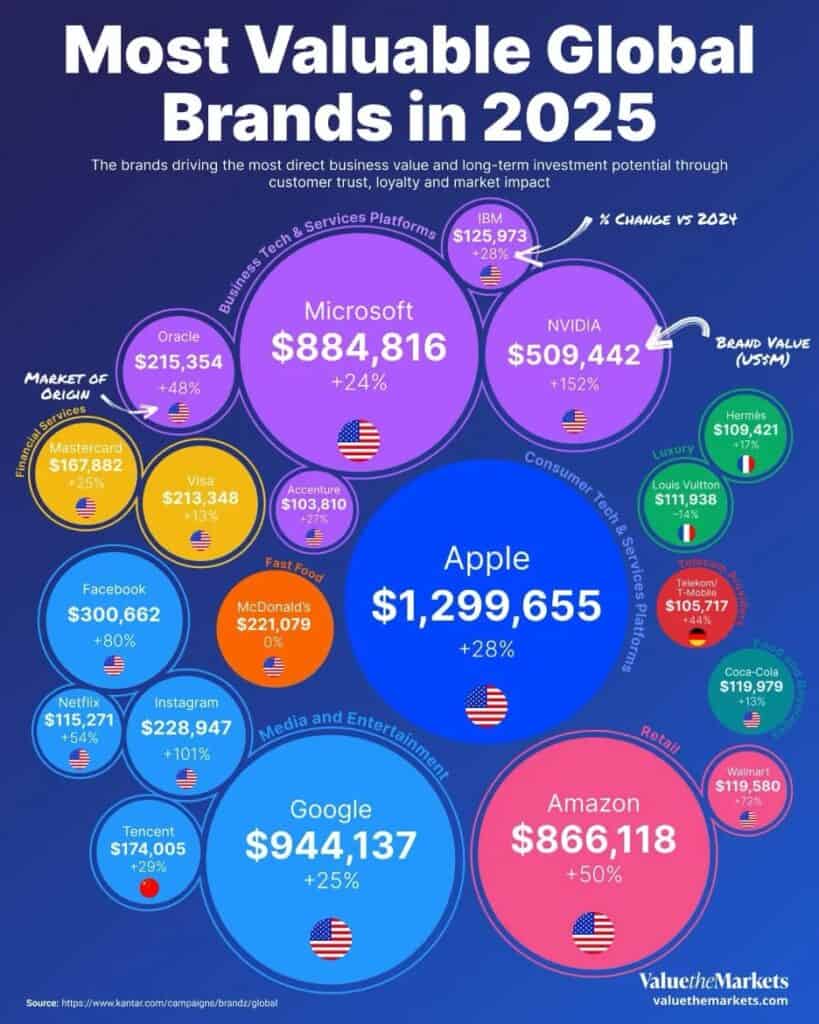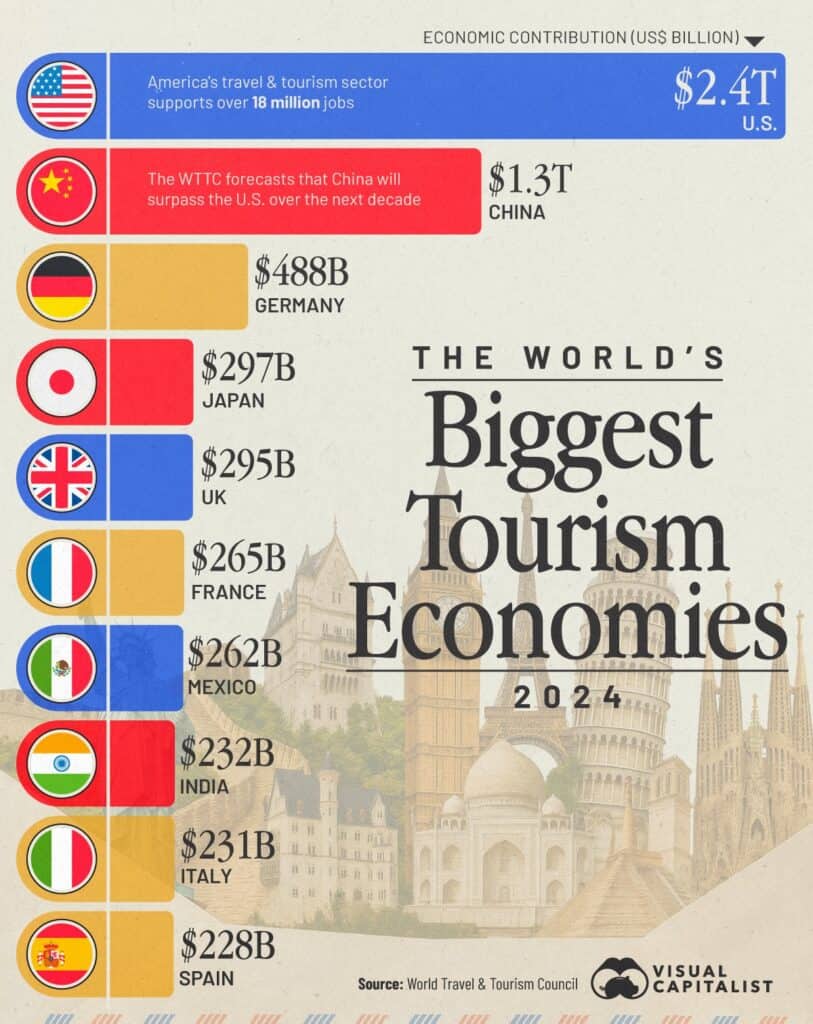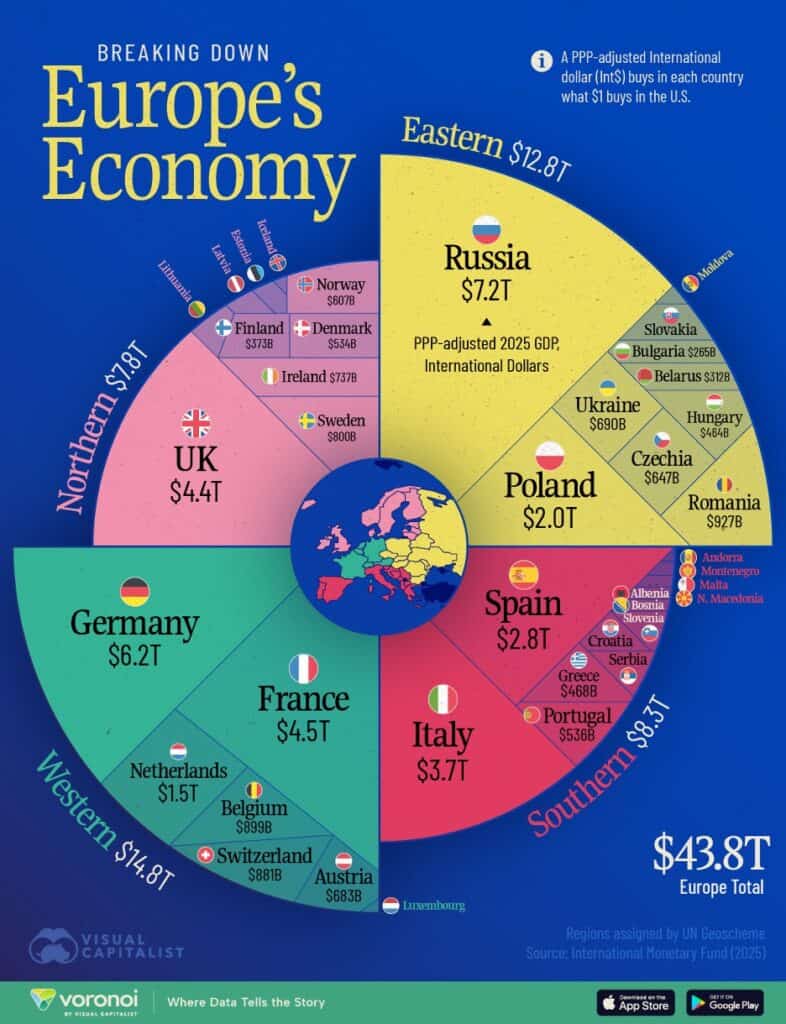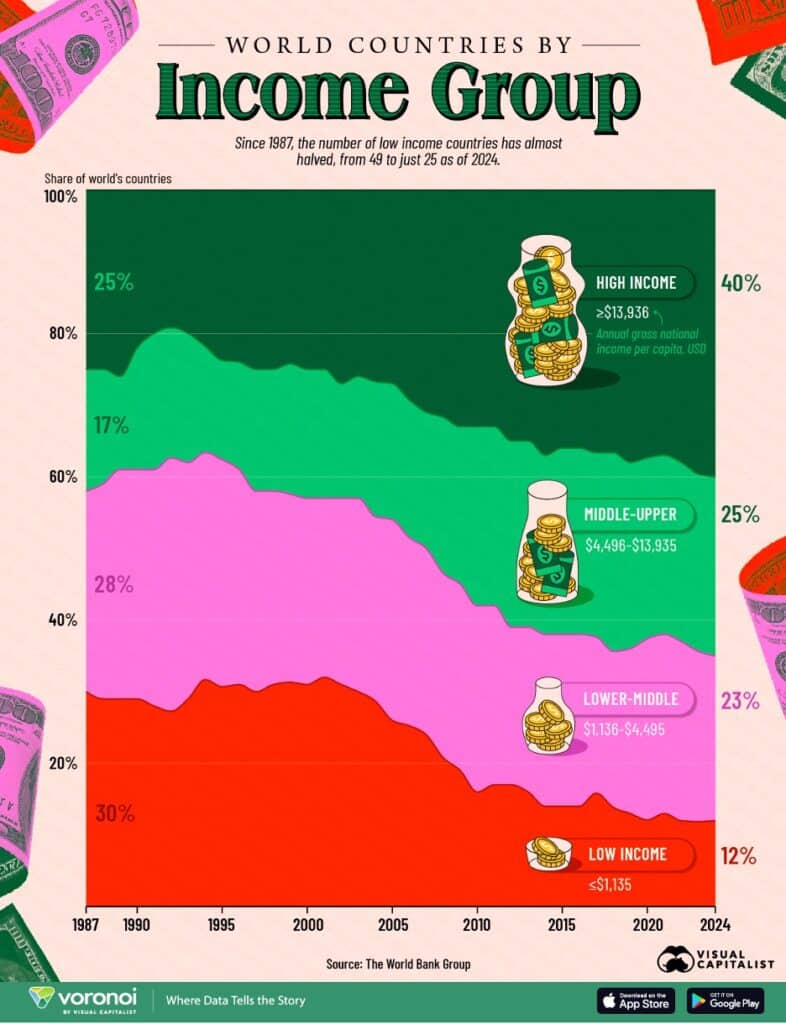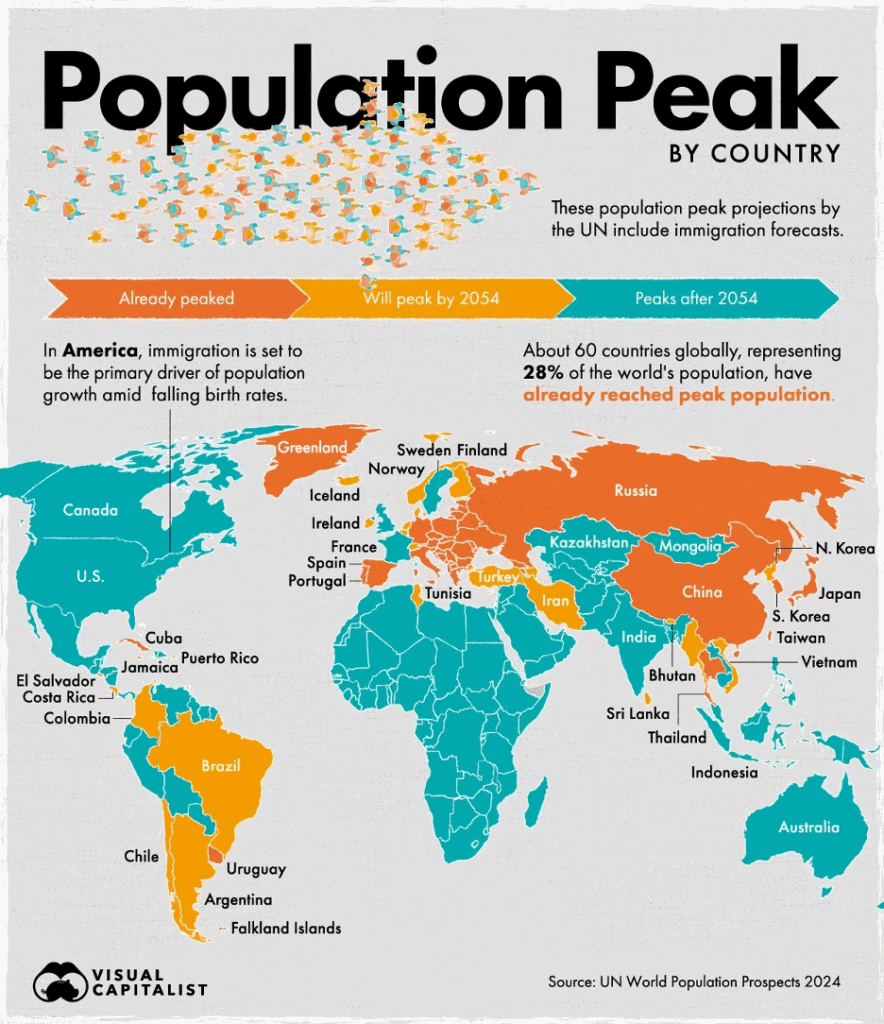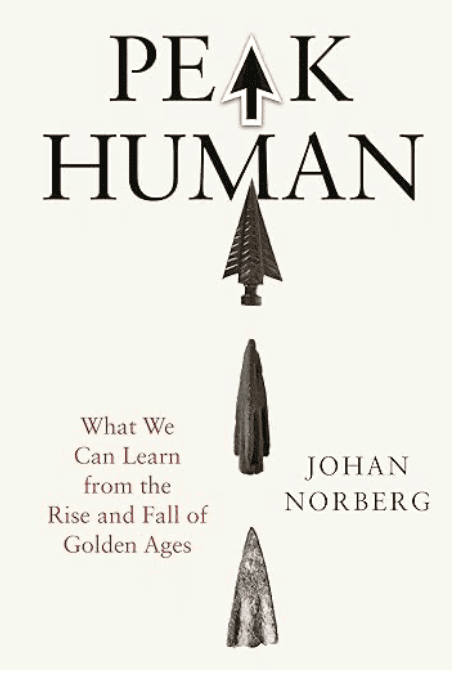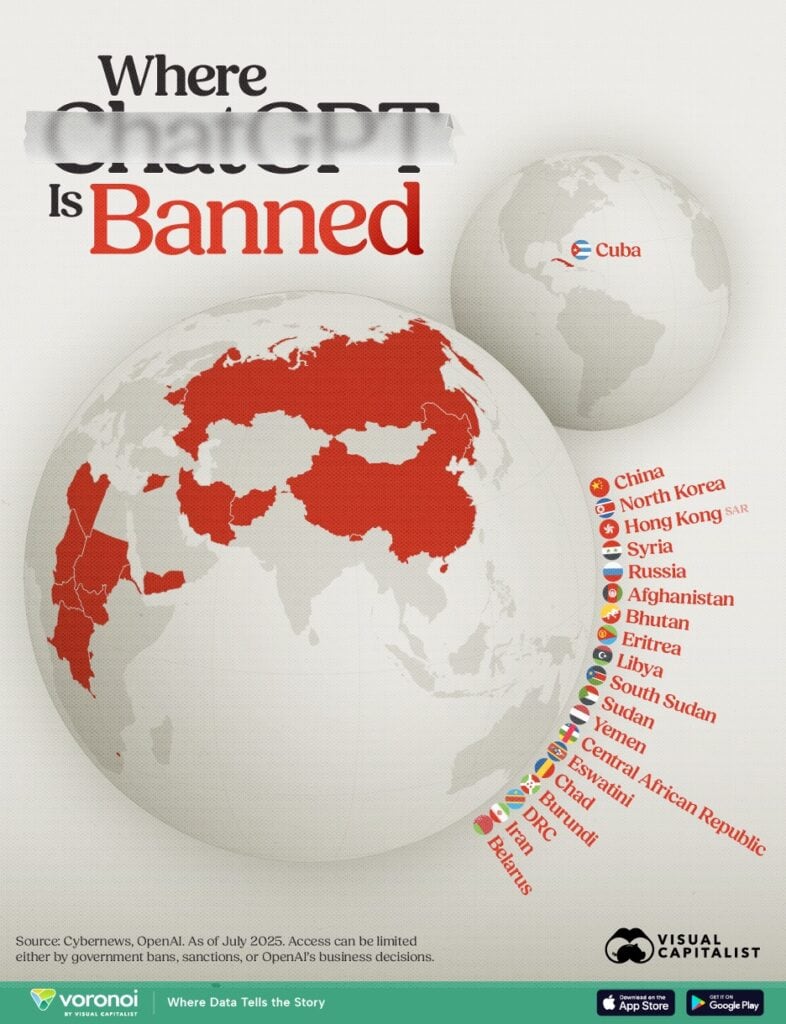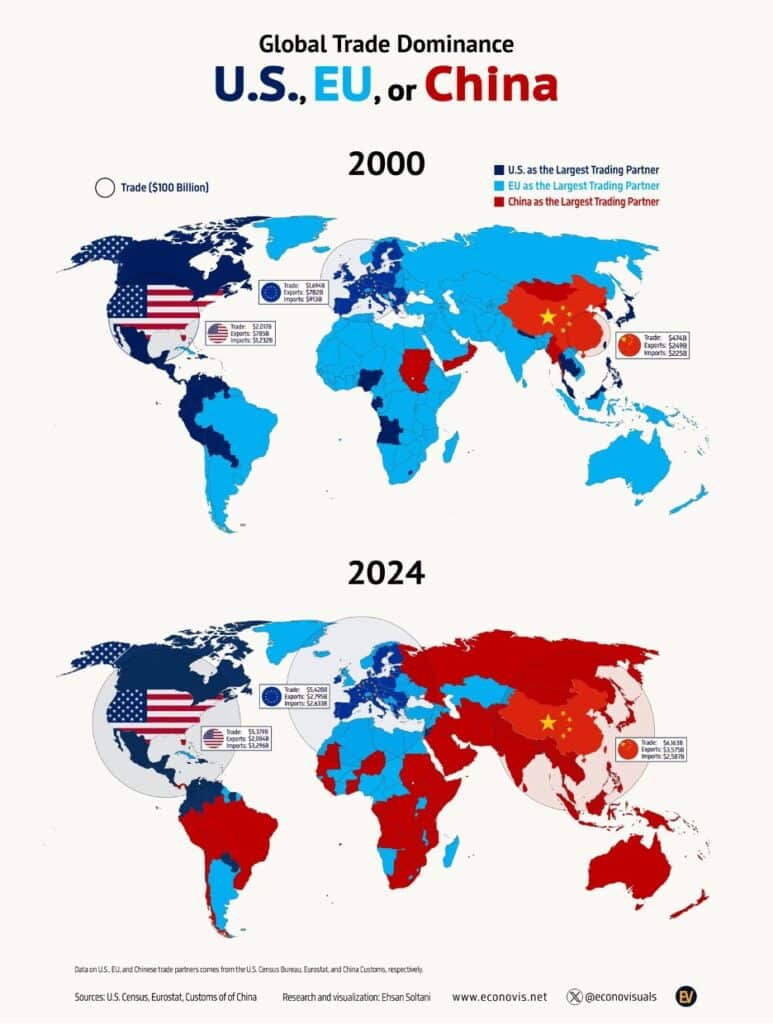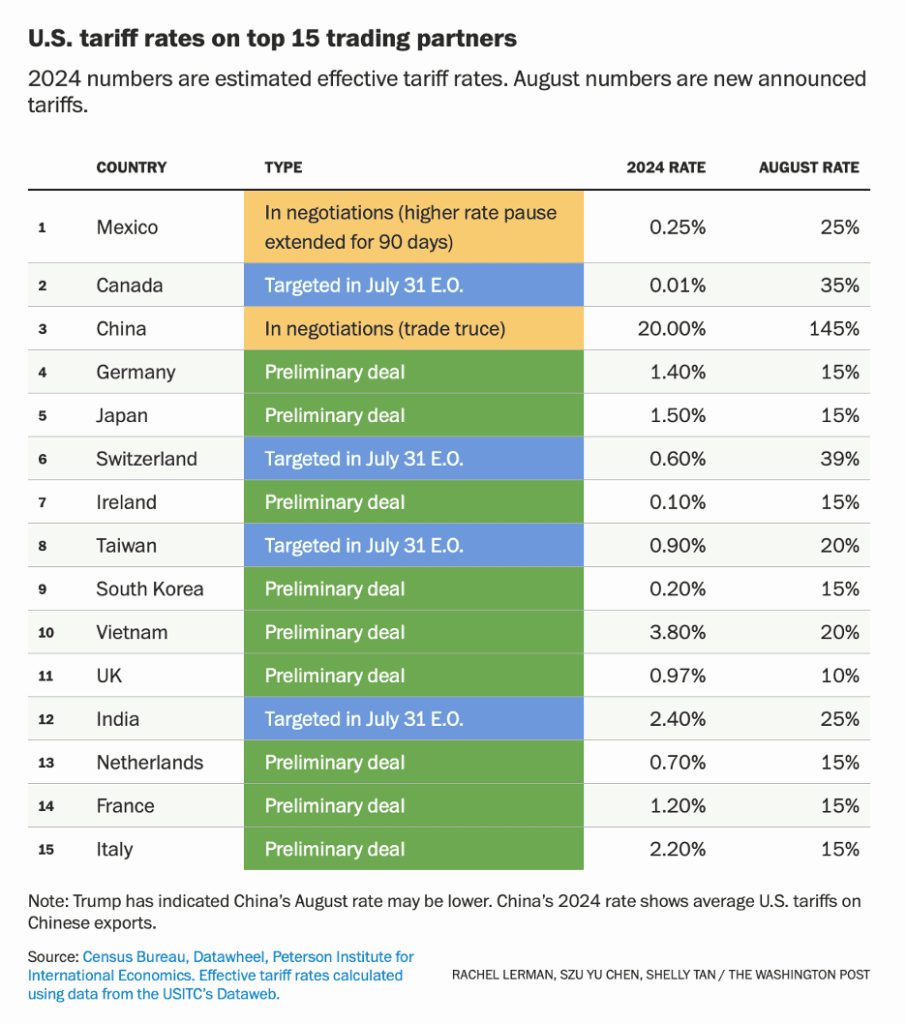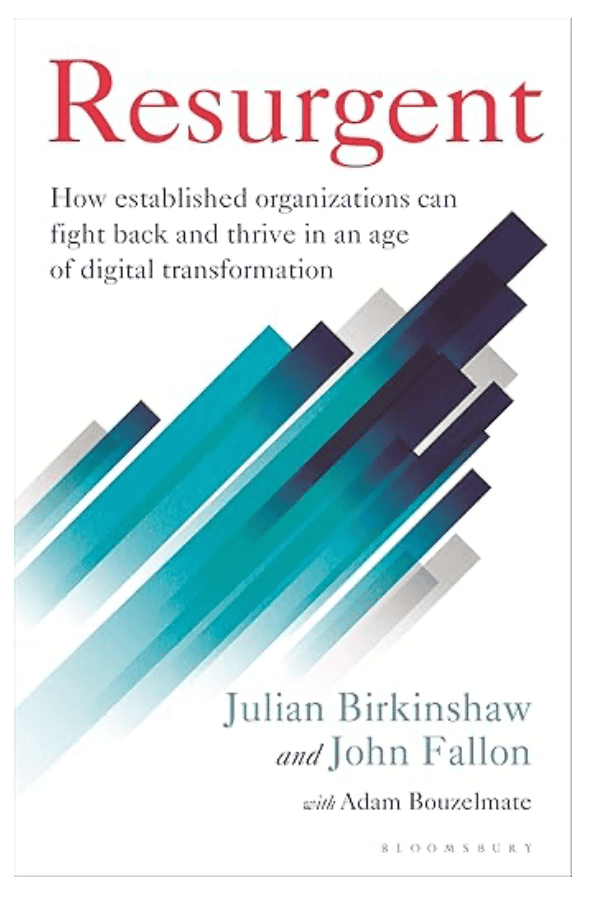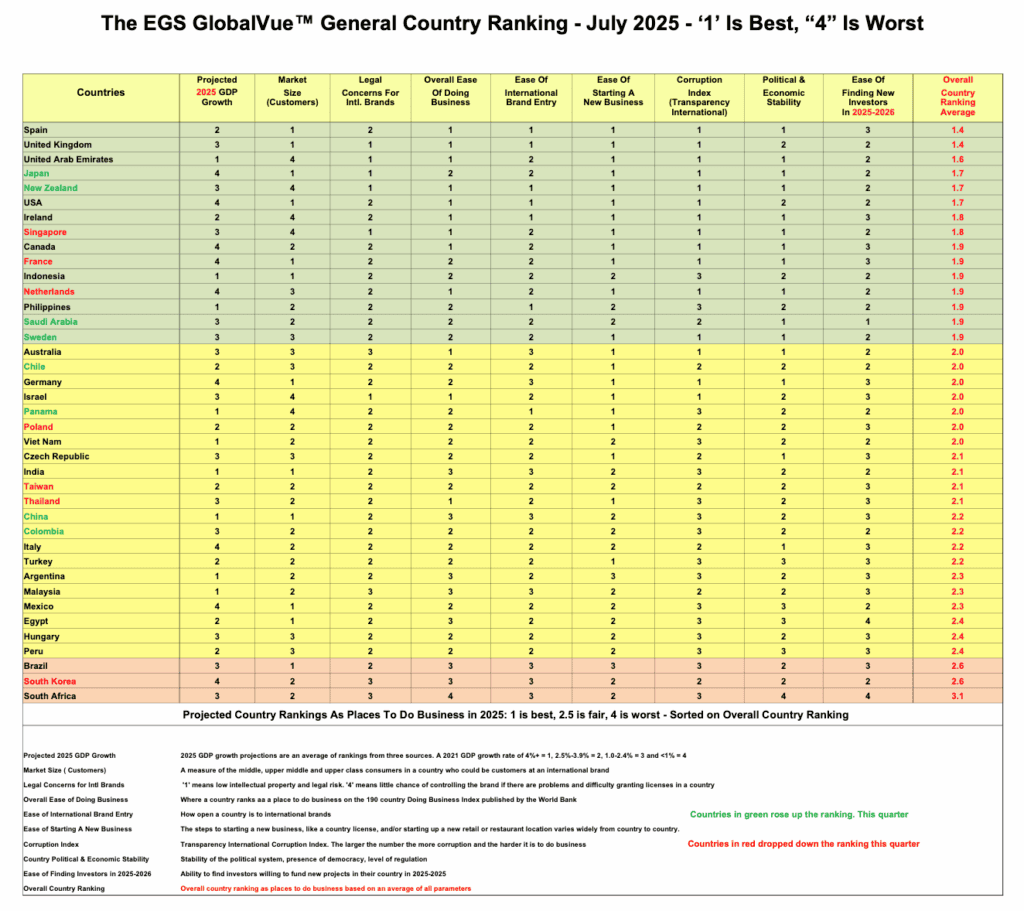Biweekly Global Business Newsletter Issue 143, Tuesday, September 16, 2025
“Protectionism is back in force, but global opportunity remains for those who adapt.”
Welcome to the 143rd Edition of the Global Business Update – – The theme of this edition reflects a statement by Larry Fink, CEO of BlackRock: “Protectionism is back in force.” This captures a defining reality of 2025. While globalization is far from over, its shape is changing. National interests, trade barriers, and geopolitical rivalries are reshaping supply chains and investment flows, creating both new obstacles and unexpected openings for global companies.
We see this contrast everywhere. Global brand value has reached a record $10.7 trillion, with artificial intelligence driving growth well beyond the tech sector. At the same time, foreign direct investment has fallen for the second year in a row, reflecting caution among investors navigating tariffs, regulatory shifts, and political uncertainty. For global franchisors and investors, the message is clear: opportunity remains robust, but adaptation is essential.
Examples abound. Coffee prices in U.S. supermarkets are at their highest since the 1990s due to tariffs, while soybean demand has shifted away from U.S. growers toward South America. Europe continues to negotiate its long-delayed Mercosur pact, Morocco is emerging as a new manufacturing hub, and Saudi Arabia is positioning itself as a global leader in solar power.
Global franchising continues to evolve with both growth opportunities and new challenges. Captain D’s is expanding beyond the U.S. with plans for entry into the United Kingdom and Canada, reflecting how strong operational results at home can fuel international ambitions. At the same time, franchise executives emphasize that while new market entry is exciting, long-term success depends on maintaining strong relationships with existing partners. Your Editor’s just published article on adapting franchise brands abroad and my article on U.S. franchisors facing persistent non-tariff barriers, reinforcing the need for due diligence and strong local partnerships abroad are in this edition.
This issue’s book Chokepoints: American Power in the Age of Economic Warfare – Summary & Insights by Edward Fishman, a former U.S. State Department sanctions strategist, argues in Chokepoints that global business has entered a new era where power is exercised not through tariffs or armies alone, but through the control of economic chokepoints — the critical supply chains, technologies, and financial systems that underpin globalization.
+++++++++++++++++++++++++++++++++++++++++++++++++++++++++++++++++++++++++++++++++++++++++
The mission of this newsletter is to use trusted global and regional information sources plus our network of 20+ in-country Associates to update our global readers on key global and local trends that can impact the success of their businesses at home and abroad. We subscribe to about 40 international information sources to keep our readers up to date on the world’s business. We do not get involved with or report on politics!
PLEASE NOTE: Some of the information sources that we provide links to in our newsletter require a paid subscription to directly access them. Clicking on a link may not give the reader access to the content.
Edited and curated by: William (Bill) Edwards, CEO & Global Business Advisor, Edwards Global Services, Inc. (EGS), Irvine, California, USA. Contact Bill with questions, comments and contributions. Bedwards@edwardsglobal.com, +1 949 375 1896
Link to our current and past newsletters: https://edwardsglobal.com/geowizard/
+++++++++++++++++++++++++++++++++++++++++++++++++++++++++++++++++++++++++++++++++++++++++
First, A Few Words of Wisdom From Others For These Times
“Protectionism is back in force, but global opportunity remains for those who adapt.”, Larry Fink, CEO of BlackRock
“AI is no longer a side project — it’s reshaping the way global business operates.”, Satya Nadella & McKinsey reports)
“Uncertainty is now a persistent reality for business leaders… draw on ‘muscle memory’ — past lessons and experiences — to navigate challenges.”, Janet Truncale, EY Global Chair & CEO
++++++++++++++++++++++++++++++++++++++++++++++++++++++++++++++++++++++++++++++++++++++++
Highlights in issue #143:
The Most Valuable Global Brands in 2025
The Biggest Tourism Economies in 2024
The Size of European Economies by GDP (PPP) in 2025
Chinese Public Wants a Balanced Approach to the United States
Non-Tariff Barriers Faced by U.S. Franchisors Expanding Internationally
Brand Global News Section: Captain D’s®, Costa Coffee®, McDonalds®, Potbelly® and Starbucks®
++++++++++++++++++++++++++++++++++++++++++++++++++++++++++++++++++++++++++++++++++++++++
Interesting Data, Articles and Studies
“The Most Valuable Global Brands in 2025 – Artificial intelligence is rewriting the rules of brand growth, and it’s not just the tech giants that are benefiting. According to the 2025 Kantar BrandZ rankings, Apple, Google, Microsoft, Amazon, and NVIDIA continue to dominate the leaderboard, but AI-driven momentum is boosting brand value across retail, media, and other sectors as well. Global brand value jumped 29% in the past year, reaching a record $10.7 trillion. While tech brands continue to lead, sectors like retail, luxury, finance, and telecom also secured top 20 positions. Together, the rankings reveal how consumer trust, innovation, and investor sentiment are shaping the global marketplace in 2025; and where retail investors may want to keep a closer watch.”, Kantar.com, September 12, 2025
+++++++++++++++++++++++++++++++++++++++++++++++++++++++++++++++++++++++++++++++++++++++++++++
“Global Investment Keeps Falling – For the second straight year, FDI fell by double digits. According to the U.N. Trade and Development organization, global foreign direct investment (FDI) dropped 11 percent in 2024. Much of the decline can be explained by trade tensions and rising uncertainty. With investor uncertainty still high, the outlook for 2025 is pessimistic as well. Closer inspection reveals some bright spots, however. For instance, although FDI flows to developed economies fell by 22 percent in 2024, investment in developing countries was stable. As a result, developing economies’ share of FDI inflows rose to 58 percent from 51 percent a year earlier. Ten countries (including China, Brazil, Mexico, Indonesia and India) accounted for roughly three-fourths of these inflows. Similarly, investment in the digital economy increased by double digits, outpacing global GDP growth.”, Geopolitical Futures, September 5, 2025
+++++++++++++++++++++++++++++++++++++++++++++++++++++++++++++++++++++++++++++++++++++++++++++
Global Supply Chain, Energy, Commodities, Inflation, Taxes & Trade Issues
“US coffee prices surge at the supermarket amid supply crunch – Donald Trump’s tariffs on Brazil are poised to compound the fastest cost increase since the 1990s. US retail coffee prices have posted the steepest year-on-year rise of this century, as tariffs on imports from Brazil, the world’s biggest producer, are poised to compound the effects of a global supply shortage. Ground coffee hit a record $8.87 a pound at groceries in August, while a consumer price index for coffee rose 21 per cent year on year, the fastest pace since 1997, according to data published on Thursday by the US Bureau of Labor Statistics. Global coffee markets have soared over the past year after poor harvests in major exporting countries drove down production.”, The Financial Times, September 11, 2025
=============================================================================================
“US misses out on billions of dollars of China soybean sales midway through peak season – South American soybeans cover 95% of China’s October demand. US faces potential export loss of 14 mln-16 mln tons. USDA may pare 2025/26 US soybean export forecast. South American soybeans cover 95% of China’s October demand. US faces potential export loss of 14 mln-16 mln tons. U.S. farmers are missing out on billions of dollars of soybean sales to China halfway through their prime marketing season, as stalled trade talks halt exports and rival South American suppliers step in to fill the gap, traders and analysts said. Chinese importers have booked around 7.4 million metric tons of mainly South American soybeans for October shipment, covering 95% of China’s projected demand for the month and 1 million tons for November, or about 15% of expected imports, according to two Asia-based traders.”, Reuters, September 10, 2025
++++++++++++++++++++++++++++++++++++++++++++++++++++++++++++++++++++++++++++++++++++++++++++++
Global & Regional Travel News
“The Biggest Tourism Economies in 2024 – The above graphic shows how America’s tourism economy is the largest globally by far—contributing $2.4 trillion to the country’s GDP in 2024, or about 3% of the total. While many international tourists are shunning America this year given trade rifts, travel data shows that its impact is mixed across U.S. regions. While Boston, Chicago, and New York are seeing at least 7% declines in international arrivals, Florida has seen an increase compared to last summer. China stands as the second-largest tourism economy worldwide at $1.3 trillion, surpassing Germany by more than twofold. If we look at India, its $232 billion tourism economy now ranks in eighth globally, surpassing Spain and Italy as the country saw record international visitor spending in 2024.”, World Travel & Tourism Council, July 6, 2025
+++++++++++++++++++++++++++++++++++++++++++++++++++++++++++++++++++++++++++++++++++++++++++++++
Book Review
Chokepoints: American Power in the Age of Economic Warfare – Summary & Insights by Edward Fishman, a former U.S. State Department sanctions strategist, argues in Chokepoints that global business has entered a new era where power is exercised not through tariffs or armies alone, but through the control of economic chokepoints — the critical supply chains, technologies, and financial systems that underpin globalization.
Fishman highlights how chokepoints such as semiconductor production, global shipping lanes, rare earth minerals, and financial clearing systems are increasingly being weaponized. The book shows how governments, especially the U.S., use sanctions, export controls, and regulatory dominance to advance national security goals. For businesses, this means that global operations are no longer shaped solely by markets — but also by geopolitics.
For corporate leaders, Fishman’s message is clear: recognize chokepoints, prepare for sudden disruptions, and build resilience before crises hit.
Five Takeaways for Global Business Leaders
Geopolitics is embedded in supply chains – sourcing decisions must factor in political stability, not just cost.
Financial flows are chokepoints – U.S. dominance in banking and the dollar gives Washington powerful levers.
Technology is a frontline – export controls on semiconductors or AI can reshape entire industries overnight.
Resilience beats efficiency – companies need redundancy and diversification, even at higher cost.
Scenario planning is essential – boards should stress-test against chokepoint disruptions just as they do for cybersecurity.
+++++++++++++++++++++++++++++++++++++++++++++++++++++++++++++++++++++++++++++++++++++++++
Country & Regional Updates
China
“US-China tensions drive business confidence to new lows, survey says – Record low optimism in five-year China business outlook. Geopolitics, domestic competition, economic slowdown are biggest challenges. US-China tariffs expected to impact 2025 revenue for 64% of firms. Political tensions, fierce domestic competition and China’s slowing economic growth are sapping the confidence of U.S. businesses in the country, with optimism about their five-year outlook falling to a record low, a survey showed. Only 41% of U.S. firms were optimistic about their five-year China business outlook, a drop of six percentage points from last year, according to the survey published on Wednesday by the American Chamber of Commerce in Shanghai. This was the weakest level of optimism reported since the AmCham Shanghai Annual China Business Report was introduced in 1999.”, Reuters, September 9, 2025
================================================================================================
“Chinese Public Wants a Balanced Approach to the United States – Few see the United States as a friend to China, but a majority want Beijing to use a mix of cooperation and containment in its approach to Washington. New research conducted by the Chicago Council on Global Affairs and The Carter Center offers a rare window into the attitudes of everyday Chinese citizens on international affairs. Most Chinese (61%) say China should pursue a dual-pronged approach to the United States, undertaking either friendly cooperation or limiting US power when appropriate. The Chinese public is divided over which country—China or the United States—is stronger economically or militarily. Those who see the United States as a stronger economic power are more likely to favor friendly cooperation with the United States (32% vs. 23% overall). Those who see China as stronger are more likely to favor actively limiting American power (25% vs 15% overall). The top two perceived threats to China both involve the United States: 57 percent say a US-China conflict over Taiwan is a major threat, and 55 percent say economic competition with the United States is a major threat. Most Chinese say trade between China and the United States does more to strengthen China’s national security (71%) than it does to weaken it (28%).”, Chicago Council on Global Affairs, September 2, 2025
=============================================================================================
European
“The Size of European Economies by GDP (PPP) in 2025 – Western Europe makes up the largest portion of the $43.8 trillion PPP-adjusted European economy, when measured in International dollars. Eastern Europe ($12.8T) outperforms both Northern ($7.8T) and Southern Europe ($8.3T) in PPP terms, helped in large part by the Russian economy ($7.2T). However, by nominal USD terms, Eastern Europe is the smallest ($4.6T), outweighed by just the Germany economy ($4.7T). While many people picture Europe’s prosperity through the lens of its Western powerhouses, a closer look at Europe’s GDP by region reveals a more nuanced regional picture. The visualization breaks down purchasing-power-parity (PPP)-adjusted output in 2025, showing how different parts of Europe contribute to the continent’s collective wealth.”, Visual Capitalist & the International Monetary Fund, September 9, 2025
=============================================================================================
“EU Pushes Ahead to Ratify Trade Deal With South American Nations – The European Union is advancing its efforts to ratify a proposed trade deal with Mercosur countries by the end of the year after proposing safeguard measures. The EU and the Mercosur nations (Argentina, Brasil, Uruguay and Paraguay) completed talks on a preliminary agreement in December after more than two decades of negotiations. Ratification of the agreement would create an integrated market of 780 million consumers, providing a boost to the EU’s embattled manufacturing sector and Mercosur’s vast agricultural industry. The agreement needs approval by the European Parliament and a qualified majority of its 27 member states, and some countries, including France and Poland, have expressed reservations about the deal’s impact on the European agricultural sector.”, Bloomberg, September 3, 2025
===========================================================================================
Morocco
“Morocco is now a trade and manufacturing powerhouse – The country’s ports and factories are humming. Morocco’s position on Europe’s southern doorstep (and as a northern entry to Africa) has helped it insert itself into global supply chains. Foreign investment has risen swiftly. According to fdi Markets, a data firm, the country has drawn about $40bn of greenfield manufacturing investment since 2020, catapulting itself into the list of the world’s largest recipients. The country’s officials attribute this success to the investor-friendly policies of King Muhammad vi, Morocco’s leader. To please overseas businesses, his government has poured money into electricity generation, ports, railways, roads and solar facilities. It spent between 25% and 38% of gdp a year on infrastructure from 2001 to 2017, which is among the most in the world.”, The Economist, September 4, 2025
=============================================================================================
Saudi Arabia
“Oil Giant Saudi Arabia Is Emerging as a Solar Power – The kingdom is betting that sunshine can power new AI data centers and help boost oil exports. Saudi Arabia is rapidly expanding its solar power capacity, aiming for 50% clean energy by 2030 to power new projects. The shift is driven by the falling costs of Chinese solar panels and batteries, making solar a cost-effective alternative to burning oil. The world’s ultimate petrostate is turning to solar power. Saudi Arabia is building some of the world’s biggest solar farms, along with giant arrays of batteries to store their electricity till after dark. The rapid rollout is making the country into one of the fastest-growing markets for solar power from a near-standing start. Saudi Arabia’s ACWA Power is undertaking power projects in Africa and Asia, exploring sending electricity to Europe in the future.”, The Wall Street Journal, September 10, 2025
============================================================================================
United States
“US Small-Business Optimism Edges Higher on Better Sales Outlook – Sentiment among US small businesses edged higher in August, led by the most favorable sales expectations in six months as owners grew more sanguine about the health of their companies. A net 12% of owners expect higher retail sales volumes in the next three months, up 6 points and contributing the most to the increase in the overall optimism index. The group’s uncertainty index fell by 4 points to 93 last month, but that was still the 11th highest reading in more than 51 years, according to NFIB. When asked to rate the overall health of their business, 68% of owners said it as either excellent or good, up from last month, while 31% said it was either fair or poor, down from July.”, Bloomberg, September 9, 2025
============================================================================================
“Lumber Prices Are Flashing a Warning Sign for the U.S. Economy – Wood prices are sliding and mills are cutting back because of uncertainty over tariffs and a building slump. Falling lumber prices are sounding an alarm on Wall Street about potential problems on Main Street. Wood markets have been whipsawed of late by trade uncertainty and a deteriorating housing market. Futures have dropped 24% since hitting a three-year high at the beginning of August and ended Monday at $526.50 per thousand board feet. The price drop might have been greater—but two of North America’s biggest sawyers said last week that they would curtail output, slowing the decline. Crashing wood prices are troubling because they have been a reliable leading indicator on the direction of the housing market as well as broader economic activity.”, The Wall Street Journal, September 8, 2025
==============================================================================================
Vietnam
“Vietnam Accelerates IPOs, Enables Higher Foreign Stock Ownership – Vietnam is rolling out a series of regulatory reforms aimed at attracting more overseas investors into its stock market, which has outperformed regional peers this year. A newly-issued decree eliminates the ability of public companies to unilaterally impose foreign ownership limits that are lower than those allowed by domestic law or international agreements…. Vietnam has taken a series of steps to boost the attractiveness of its equities to global funds in recent years, including seeking to be classified as an ‘emerging market’ by the FTSE Russell indexes.”, Bloomberg, September 13, 2025
++++++++++++++++++++++++++++++++++++++++++++++++++++++++++++++++++++++++++++++++++++++++++
The Accredited Franchise Supplier certification
+++++++++++++++++++++++++++++++++++++++++++++++++++++++++++++++++++++++++++++++++++++++++++++
Global Brand & Franchise Sector News
“Potbelly Sandwich Chain to Sell Itself to Convenience-Store Operator RaceTrac – The $566 million deal is expected to close this year; companies don’t plan to ‘put a Potbelly in every RaceTrac’. Potbelly Chief Executive Robert Wright said that Potbelly and RaceTrac would remain distinct brands after the deal closes. ‘Their strategy isn’t necessarily to put a Potbelly in every RaceTrac,’ he said. Rather, Wright said, the sandwich brand hopes the new ownership will help it reach its goal of 2,000 stores. Potbelly currently operates more than 445 stores across the U.S.”, The Wall Street Journal, September 10, 2025
==============================================================================================
“Adapt Without Compromise – When Franchises Reinvent Themselves Abroad – Franchising internationally isn’t just about exporting a proven concept—it’s about transforming that concept for a different world while maintaining brand integrity. Brands that thrive overseas are those that make smart, respectful changes without compromising their identity. The more thoughtfully you adapt, the more successfully you scale in other countries. Here are some standout examples of brands that didn’t just adjust; they reinvented themselves for success in a new culture while maintaining brand integrity.”, Franchise Update, 3rd Quarter 2025. Article. By William Edwards, Editor
=============================================================================================
“The Seafood Chain That Could Be Swimming Towards A Comeback – As of 2025, Captain D’s operates over 530 locations across 23 states, with state number 24 on the agenda for this year as part of an expansion plan into more northeastern states. Competitor seafood restaurants may have struggled financially during the COVID-19 pandemic, but Captain D’s emerged victorious, “enjoying double-digit sales and double-digit traffic,” according to a press release. Thanks to changes in business operations and restaurant layout, Captain D’s is on track to expand into the United Kingdom and Canada over the next few years, as well as continuing expansion domestically.”, Tasting Table, September 6, 2025
==============================================================================================
“From Renewal to Launch: How Strong Master Franchise Relationships Fuel Further Global Expansion– Taking a successful franchise brand abroad for the first time is filled with excitement and nerves. When the brand continues its international growth trajectory, each new country comes with the same level of excitement, along with greater confidence and less anxiety. But beyond simply planting flags in new international markets, it’s essential for a franchisor to not lose sight of their existing partnerships, ones they’ve already spent years nurturing and growing. Those established agreements must remain strong and relevant as their success will eventually serve as the foundation for each new developing market.”, Franchising.com, September 12, 2026. Article by Larisa Walega, the chief growth officer of Ziebart International Corporation.
=============================================================================================
“Drive-thru operator could switch from Starbucks to Costa Coffee – Coca-Cola may sell coffee chain for as little as £2 billion. Britain’s biggest Starbucks operator is weighing an audacious move to jettison its sites to unlock a cut-price swoop on rival Costa Coffee. EG Group, owned by private equity firm TDR Capital and Blackburn forecourt tycoons Mohsin and Zuber Issa, is understood to be considering proposals to sell the franchise rights to the 140 Starbucks “drive-thru” and “drive-in” sites that it operates across the UK. EG must do so to allow it or TDR to bid for Costa, whose owner, Coca-Cola, has begun sounding out potential suitors.”, The Times of London, September 6, 2025
=============================================================================================
“McDonald’s Escalates Restaurant Industry’s Fight Over Tipping – Burger giant says all workers should receive a base wage, including tipped servers employed by rivals. McDonald’s opposes wage rules allowing restaurants to pay tipped workers below the standard minimum wage. CEO Chris Kempczinski says all workers should earn at least the minimum wage, regardless of tips received. The McDonald’s critique aligns it with labor groups advocating against tipped wages. McDonald’s has gone so far as to withdraw from the National Restaurant Association, the industry’s main U.S. trade group, as a result of its stance on the tipped wage and other issues.”, The Wall Street Journal, September 4, 2025
===========================================================================================
“Non-Tariff Barriers Faced by U.S. Franchisors Expanding Internationally – When U.S. franchisors expand into new international markets, they often encounter non-tariff barriers that can significantly impact their ability to establish and grow. Unlike tariffs, which are direct taxes on imports, non-tariff barriers include regulatory, cultural, and operational challenges that vary by country. Understanding and addressing non-tariff barriers is critical for U.S. franchisors to succeed internationally. Comprehensive due diligence, market assessments, and strong local partnerships are key strategies for overcoming these challenges.”, William Edwards, September 12, 2025
++++++++++++++++++++++++++++++++++++++++++++++++++++++++++++++++++++++++++++++++++++++++++++++
To receive our biweekly newsletter in your email every other Tuesday, click here – https://insider.edwardsglobal.com
+++++++++++++++++++++++++++++++++++++++++++++++++++++++++++++++++++++++++++++++++++++++++++++++
Our Mission, Information Sources & Who We Are
Our biweekly global business update newsletter focuses on what is happening around the worldthat impacts new trends, health, consumer spending, business investment, the franchise sector, economic development, and travel. We daily monitor 30+ countries, 40+ international information sources and six business sectors to keep up with what is going on in this ever-changing business environment. And our GlobalTeam™ on the ground covering 25+ countries provide us with updates about what is actually happening in their specific countries. We do not get involved in or report on politics!
+++++++++++++++++++++++++++++++++++++++++++++++++++++++++++++++++++++++++++++++++++++++++++
William “Bill” Edwards: Global Advisor Is Uniquely Qualified to Steer Sr. Executives Successfully Through the Complex Waters of Going Global. With four decades of successful international business experience spanning virtually every corner of the world and many business sectors, Bill Edwards understands the global business landscape like no other. He has been a County Master Franchisee in five countries in Asia, Europe, and the Middle East; the Senior VP for a franchisor operating in 15 countries and a full-service consultant since 2001 taking 40+ companies global.
For a complimentary 30-minute consultation on how to take your business into new countries and make money doing it. For a complimentary call with Bill Edwards click on the QR code or contact Bill at bedwards@edwardsglobal.com and +1 949 375 1896
Biweekly Global Business Newsletter Issue 142, Tuesday, September 2, 2025
“The old maps no longer apply. We need new compasses
and the courage to use them.”
Welcome to the 142nd Edition of the Global Business Update – Global business activity this period reflects both persistent headwinds and major structural shifts. U.S. food companies are pressing for relief from new tariffs, arguing that sectors dependent on imported seafood and produce cannot source substitutes domestically. In Europe, Brussels has struck a deal with Washington to scrap tariffs on U.S. industrial goods in exchange for moderating auto levies, underscoring the delicate balance in transatlantic trade.
Demographics remain another powerful theme: more than 60 countries, including China, Japan, and Germany, have already peaked in population, while India, Nigeria, and the U.S. will continue to expand, driven by immigration and younger age profiles. On the energy front, 2025 marks a milestone, with global renewable investment forecast to hit $780 billion—well above oil spending.
China presents a mixed picture: consumer confidence is subdued, and property challenges persist, yet retail categories are growing, auto exports are surging, and Hangzhou has become the first city to mandate AI education, a signal of the country’s long-term priorities, energy, and technology are converging to redefine business strategy globally.
The global franchise sector remains dynamic. Papa John’s is re-entering India with plans for 650 stores, while Chick-fil-A is preparing its first locations in the UK and Singapore. Dave’s Hot Chicken is accelerating across Europe with a deal for 180 restaurants following its viral UK success. Meanwhile, U.S. restaurants still face profitability pressures, Burger King has closed nearly all outlets in Hong Kong, and regulatory changes in Indonesia are complicating market entry. By contrast, Tims China has passed 1,000 outlets, reflecting strong consumer appetite and the continued resilience of franchise growth globally. More global franchise updates than usual this edition. Lots going on in the global franchise world!!!!
“Ports, Politics, & The Price Of Trade: A Frontline Economic View” – this webinar that I did on August 22nd is now on YouTube and brings you up to date on these key subjects.
This issue’s book is: Peak Human: What We Can Learn From History’s Greatest Civilizations, by Johan Norberg who argues that peak performance comes not from longer hours but from aligning energy, recovery, and purpose. Drawing lessons from neuroscience, psychology, and history’s great civilizations, the book offers practical strategies for leaders to foster resilience, deep focus, and trust-based cultures that multiply both individual and organizational success.
+++++++++++++++++++++++++++++++++++++++++++++++++++++++++++++++++++++++++++++++++++++++++
The mission of this newsletter is to use trusted global and regional information sources plus our network of 20+ in-country Associates to update our global readers on key global and local trends that can impact the success of their businesses at home and abroad. We subscribe to about 40 international information sources to keep our readers up to date on the world’s business. We do not get involved with or report on politics!
PLEASE NOTE: Some of the information sources that we provide links to in our newsletter require a paid subscription to directly access them. Clicking on a link may not give the reader access to the content.
Edited and curated by: William (Bill) Edwards, CEO & Global Business Advisor, Edwards Global Services, Inc. (EGS), Irvine, California, USA. Contact Bill with questions, comments and contributions. Bedwards@edwardsglobal.com, +1 949 375 1896
Link to our current and past newsletters: https://edwardsglobal.com/geowizard/
+++++++++++++++++++++++++++++++++++++++++++++++++++++++++++++++++++++++++++++++++++++++++
First, A Few Words of Wisdom From Others For These Times
“The old maps no longer apply. We need new compasses and the courage to use them.”, Kearney CEO Retreat 2025
“Economic globalization remains irreversible.”, Li Qiang – China
“The entrepreneur always searches for change, responds to it, and exploits it as an opportunity.” – Peter Drucker
++++++++++++++++++++++++++++++++++++++++++++++++++++++++++++++++++++++++++++++++++++++++
Highlights in issue #142:
63 Countries Have Already Reached Peak Population
Why every company now needs a Chief Geopolitical Officer –
Restaurant profitability has taken a hit since the pandemic
Share of the World’s Countries by Income (1987-2024)
New $250 visa fee risks deepening US travel slump
Brand Global News Section: Americana, Burger King®, Chick-fil-A®, Cracker Barrel®, Dave’s Hot Chicken, Dominos®, Papa John’s®, TH International and Tim Hortons®
++++++++++++++++++++++++++++++++++++++++++++++++++++++++++++++++++++++++++++++++++++++++
“Ports, Politics, & The Price Of Trade: A Frontline Economic View” – This current affairs webinar, hosted by the World Affairs Council of Orange County, featured presentations by Ferdinando (Nando) Guerra and William (Bill) Edwards (Your Editor!!). The discussion focused on the critical role of the Port of Long Beach and the Port of Los Angeles in the U.S. and in today’s global economy, the impact of tariffs and trade policy, as well as the broader challenges facing international businesspeople today. Click on the link to go to the YouTube webinar.
+++++++++++++++++++++++++++++++++++++++++++++++++++++++++++++++++++++++++++++++++++++++++++++
Interesting Data, Articles and Studies
“US food groups plead for relief from Donald Trump’s tariffs – Piecemeal approach leaves seafood and produce sectors fighting to win individual carve-outs. Industry groups warn that the food sector is uniquely vulnerable to tariffs because some affected countries grow ingredients that will never be produced in quantity in the US. But lobby groups are taking a piecemeal approach by pleading for exemptions rather than attacking tariffs overall. Most food consumed in the US is produced domestically by its vast farm sector. But about a fifth is imported, according to the US agriculture department.”, The Financial Times, August 24, 2025
Editor’s Note: The left axis of this chart is the effective US tariff rate (%) as of the time of this article.
=============================================================================================
“Share of the World’s Countries by Income (1987-2024) – The number of low-income countries has almost halved, with their global share dropping from 30% in 1987 (49 countries) to 12% in 2024 (25 countries).Middle-income is now the plurality. Upper-middle (25%) and lower-middle (23%) income groups together account for almost half of the world’s countries in 2024, underscoring a broad shift out of extreme poverty but not yet into the richest tier. The world’s income landscape has shifted dramatically over the last four decades.From 1987 to 2024, more of the world’s countries have steadily risen out of the low-income category, reshaping the global distribution of prosperity.”, Visual Capitalist and the World Bank, August 27, 2025
============================================================================================
“Why every company now needs a Chief Geopolitical Officer – With governments and international institutions acknowledging the fragmenting global order, the creation of a Chief Geopolitical Officer role is an urgent priority for business. The CGO role is designed to integrate sophisticated geopolitical intelligence into core business decision-making. When both governments and international institutions are explicitly warning businesses about geopolitical risks, traditional corporate approaches to navigating international relations are no longer sufficient. The solution isn’t merely better government relations or enhanced risk management; it’s the emergence of an entirely new C-suite role: the Chief Geopolitical Officer (CGO). While the CGO title is new and rare, the function isn’t. Meta’s Vice President of Global Affairs – held until recently by former British Deputy Prime Minister Nick Clegg – is a role that has existed for over 10 years in the company. His experience was sought as the tech giant needed to navigate the intricate web of EU privacy regulations, US content moderation demands, and other challenges of entering complex markets.”, World Economic Forum, July 16, 2025
============================================================================================
“63 Countries Have Already Reached Peak Population – China, Germany, and Japan have all reached peak population by 2024. Across 48 countries, populations are projected to peak between 2025 and 2054, representing 10% of the world population. Meanwhile, 126 countries are forecast to grow through 2054, including India, Pakistan, Nigeria, and America. Countries are growing (or declining) at different levels due to factors like fertility rates, mortality, and immigration. The UN’s latest population prospects finds that more than a quarter of the global population live in countries that are shrinking in population size. On the other hand, immigration will be a primary driver of population growth in countries like the U.S. and Canada, while high fertility rates and younger demographics are set to propel growth in Angola, Somalia, and Niger.”, Visual Capitalist & UN World Population Prospects 2024, August 25, 2025
+++++++++++++++++++++++++++++++++++++++++++++++++++++++++++++++++++++++++++++++++++++++++++++
Global Supply Chain, Energy, Commodities, Inflation, Taxes & Trade Issues
“The Shift in Global Energy Investment (2015-2025) – In 2025, global renewable energy investment is projected to hit $780 billion, outpacing oil investment by $237 billion. Over the past decade, investment in renewables has surged 109%. Global energy investment has shifted dramatically in the last decade. As the world transitions to cleaner sources, capital is flowing into technologies that support electrification and decarbonization. Bolstering this trend are rapidly declining costs across solar and wind power, in particular.”, Visual Capitalist and the IEA, August 26, 2025
++++++++++++++++++++++++++++++++++++++++++++++++++++++++++++++++++++++++++++++++++++++++++++++
Global & Regional Travel News
“New $250 visa fee risks deepening US travel slump – Fee impacts travelers from non-visa waiver countries like Mexico, India, China. Travel from Mexico, Argentina, Brazil sees growth despite overall decline. Visa fee raises total cost to $442, among highest globally. Overseas travel to the U.S. fell 3.1% year-on-year in July to 19.2 million visitors, according to U.S. government data. It was the fifth month of decline this year, defying expectations that 2025 would see annual inbound visitors finally surpass the pre-pandemic level of 79.4 million.”, Reuters, August 30, 2025
+++++++++++++++++++++++++++++++++++++++++++++++++++++++++++++++++++++++++++++++++++++++++++++++
Book Review
“Peak Human: What We Can Learn From History’s Greatest Civilizations, by Johan Norberg – Peak Human explores how individuals and organizations can unlock their highest levels of performance by aligning biology, mindset, and systems. Drawing from neuroscience, psychology, and leadership research, the book argues that sustainable success comes from optimizing not just productivity but also energy, recovery, and purpose.
The author emphasizes that today’s workplace rewards agility, resilience, and creativity more than sheer output. Leaders must therefore reframe success away from constant busyness toward intentional performance cycles that balance stress with renewal. Practical strategies include leveraging daily rituals, cultivating deep focus, and building resilience through recovery practices like sleep and mindfulness.
The book also highlights how social and organizational environments shape performance. Leaders who create cultures of trust, connection, and psychological safety unleash far greater discretionary effort. Ultimately, *Peak Human* is both a manual for personal mastery and a guide for building high-performing, human-centered organizations.
5 Key Takeaways for Businesspeople
Energy > Time – Performance is not about managing hours but about managing physical, emotional, and mental energy. Business leaders should design work rhythms that sustain energy, not deplete it.
Stress + Recovery = Growth – Like elite athletes, professionals grow when cycles of challenge are paired with proper recovery. Burnout happens when recovery is neglected.
Deep Work Drives Value – In an age of distraction, the ability to focus deeply on high-impact tasks is a competitive advantage. Leaders should protect and prioritize time for such work.
Culture Multiplies Individual Effort – Trust, connection, and a sense of belonging enable teams to perform beyond the sum of their parts. Leaders must model empathy and authenticity.
Purpose Fuels Resilience – When individuals tie their work to a meaningful purpose, they access higher levels of motivation, adaptability, and perseverance—critical in uncertain markets.
+++++++++++++++++++++++++++++++++++++++++++++++++++++++++++++++++++++++++++++++++++++++++
Country & Regional Updates
Australia
“An 83-Year-Old Pizza Tycoon Fights to Save 3,500 Domino’s – Billionaire Jack Cowin built a fast-food empire by bringing fried chicken to 1960s Australia. Now, at 83, he’s back to attempt a turnaround of the biggest Domino’s Pizza franchisee outside the US. Cowin is the largest shareholder of Sydney-listed Domino’s Pizza Enterprises Ltd., which has more than 3,500 stores from Australia to Europe. The stock has plunged 91% from its peak four years ago as rising costs and competition eroded its market share. The US-listed Domino’s Pizza Inc. has slid just about 10% over the same period. The octogenarian has much to gain from reviving the pizza chain. His near 25% stake in the firm is part of his $3.2 billion fortune, which the Bloomberg Billionaires Index has calculated for the first time. Domino’s Pizza Enterprises said Wednesday it swung to loss of A$3.7 million ($2.4 million) in the year ended June 29 from a profit of A$96 million a year earlier.”, Bloomberg, August 26, 2025
=============================================================================================
China
“Five surprises from China’s consumer market – Although macro indicators remain mixed and headwinds persist, several lesser-known developments are signaling deeper shifts in how China consumes, innovates, and competes both at home and on the global stage. China’s economy in the first half of 2025 presents a complex and often contradictory picture. Consumer confidence remains low, the property market is under sustained stress, and households continue to save at historically high levels. Retail sales are climbing in key categories, air travel has surpassed 2019 levels, auto exports have risen to the top globally, and Chinese pop culture is gaining an international foothold. Despite the return of growth in several sectors, China’s Consumer Confidence Index (CCI) remains near historic lows and has only gradually been recovering. Concerns about employment, economic stability, and especially the ongoing property downturn are still top of mind.”, McKinsey & Co., August 13, 2025
=============================================================================================
“China’s Hangzhou makes AI classes compulsory in schools amid nationwide push – Local governments are beginning to take action after Beijing said it wants all primary and secondary students to study the advanced tech. Hangzhou, in China’s Zhejiang province, will introduce mandatory artificial intelligence (AI) courses for primary and secondary schools starting in the new semester – part of a nationwide strategy to nurture talent in the rapidly growing sector. The initiative seeks to build a talent pipeline while improving educators’ ability to use smart tools and protect data, covering both student and teacher training, according to two documents released by the city’s education bureau.Schools will have flexibility in how they deliver the lessons – either by concentrating them within a single week or integrating AI content into subjects like information technology and science.”, The South China Morning Post, August 26, 2025
==============================================================================================
European Union
“E.U. to Scrap Duties on U.S. Industrial Goods as It Scrambles to Soften Auto Tariff Blow – Brussels and Washington agreed to cut levies on European autos to 15% from a provisional rate of 27.5%. The European Union will move to eliminate all tariffs on U.S. industrial imports and expand access for American farm products, part of an effort to shield European automakers from steeper duties on their exports to the U.S. The proposals follow a joint statement last week in which Brussels and Washington agreed to cut levies on European autos to 15% from a provisional rate of 27.5%. In return, the EU committed to lowering tariffs on a range of U.S. goods. Under the EU’s proposal, tariffs on U.S. industrial goods would be scrapped entirely, while American seafood and certain non-sensitive agricultural products would receive preferential access to the European market. A separate proposal would extend tariff-free treatment for U.S. lobster, including processed varieties of the shellfish. The measures will now go to other EU institutions for approval.”, The Wall Street Journal, August 28, 2025
===========================================================================================
Middle East

“Middle East KFC operator Americana to diversify into local brands after Gaza boycott – Sales at fast-food franchise operator tumbled when consumers turned on western outlets over American support for Israel. Americana, the Middle East’s biggest fast-food franchise operator, is planning to diversify away from US brands after profits generated from the likes of KFC and Krispy Kreme were hit by local boycotts. Full-year net profits at the company fell nearly 40 per cent to $159mn last year, as consumers in the region rejected US-linked eateries and products over Washington’s support for Israel during the war in Gaza. The Middle East and north Africa’s fast-food market is worth about $33bn, according to data analytics company Euromonitor International, with average annual growth of nearly 9 per cent since 2020. McDonald’s was among the fast-food chains that had been hit by the consumer boycott but said in February that its Middle East business had picked up again.”, The Financial Times, August 29, 2025
=============================================================================================

“Solid Fundamentals Shield GCC Economies From Global Volatility – Gulf Arab states’ solid macroeconomic and financial fundamentals will keep the region resilient in the face of global economic uncertainty, including a potential sustained drop in oil prices over the next few quarters. According to the International Monetary Fund (IMF), the members of the Gulf Cooperation Council (GCC) are expected to sustain solid economic growth over the next five years against the backdrop of low inflation and strong current account and external financial positions. Oil prices and production levels, particularly in the case of swing producers like Saudi Arabia and the United Arab Emirates, will continue to strongly contribute to economic growth, despite Gulf states’ decades-long and ongoing efforts to diversify away from oil and gas production.”, RANE Worldview, August 19, 2025
=============================================================================================
Poland
“Why Poland is becoming less central European and more Baltic – Thanks to energy and security concerns, its centre of gravity is shifting north. Poland’s south, home to most of its coal mines and heavy industry, has long been the country’s engine room. That is changing. Poland plans to phase out coal by 2049, so as to align with euclean-energy targets. Increasing mining costs are also helping the economy go green. In June of this year, Poland’s renewables generated more power than coal for the first time. Energy is leading the way.Poland plans to phase out coal by 2049, so as to align with euclean-energy targets. Increasing mining costs are also helping the economy go green. In June of this year, Poland’s renewables generated more power than coal for the first time. Poland is increasingly looking to the Baltic coast to meet its energy needs. The country has already boosted capacity at its only lng(liquefied natural gas) terminal, in Swinoujscie, to 8.3bn cubic metres (bcm) per year, and plans to open a second one, capable of handing another 6.1bcm, in Gdansk in 2028. A pipeline stretching from Norway through Denmark, launched in 2022, can provide up to 10bcm more gas. Wind power, which now accounts for 14.7% of Poland’s energy mix, up from 0.3% two decades ago, is also moving north, and offshore.”, The Economist, August 28, 2025
============================================================================================
United States
“Uncertainty Rises, Small Business CEO Confidence Stalls – After July’s modest boost in confidence, the WSJ/Vistage Small Business CEO Confidence Index dropped slightly in August to 85.0. Beneath this relative stability, however, lies a growing undercurrent of uncertainty, driven by shifting policy signals and unanswered questions about the recently passed One Big Beautiful Bill Act (OBBBA). Nearly half of small business leaders report that their economic uncertainty has grown in the last few months. Simply scanning headlines of tariffs, trade, and other legislation reveals plenty of unknowns. Even the OBBBA, with its major tax provisions, has been slow to gain positive traction.”, The Wall Street Journal & Vistage, August 2025 Survey
============================================================================================
“U.S. Economy Grew Faster in Second Quarter, New Estimate Shows – Consumer spending, growth in AI added to GDP revision. Gross domestic product expanded at a seasonally and inflation-adjusted annual rate of 3.3% in the quarter, the Commerce Department said in an updated estimate Thursday. The department had previously said the economy grew by 3%. The economy’s growth reflected in part a drop in imported goods after companies front-loaded purchases earlier in the year to get ahead of new tariffs. Trade can cause swings in quarterly growth because of the way GDP is calculated.
The latest estimate changed because of revisions to investment and consumer spending, the department said. Investments in intellectual property, light trucks and commercial and healthcare structures were all revised upward. With the latest estimate, the U.S. economy grew at an annualized average of 1.4% in the first half of the year. That is still a significant slowdown from the pace of growth in recent years. In 2024, GDP grew by an average pace of 2.5%.”, The Wall Street Journal, August 28, 2025
++++++++++++++++++++++++++++++++++++++++++++++++++++++++++++++++++++++++++++++++++++++++++
The Accredited Franchise Supplier certification
+++++++++++++++++++++++++++++++++++++++++++++++++++++++++++++++++++++++++++++++++++++++++++++
Global Brand & Franchise Sector News
“Restaurant profitability has taken a hit since the pandemic – According to the National Restaurant Association, median profitability at all restaurants remains lower than it was before the pandemic, despite historic increases in menu prices. According to the National Restaurant Association’s latest data abstract, median income before taxes at full-service restaurants is just 2.8% of revenues, compared with 4% in 2019. The weakened profitability has come despite historically high increases in menu prices, which has turned off a certain segment of the U.S. consumer. Yet those increases haven’t been enough to offset restaurant profits.”, Restaurant Business By Jonathan Maze on Aug. 28, 2025
==============================================================================================
“The Impact of Recent Franchise Regulation Changes in Indonesia – Indonesia’s current regulations on franchises, as stipulated under Government Regulation No. 35/2024 on Franchising and its implementing regulation, Ministry of Trade (MOT) Regulation No. 71/2019 regarding Implementation of Franchising, highlight fundamental changes in franchise registration. These changes have introduced additional complexities and challenges in the franchise registration procedure, making it more difficult for franchise owners to navigate the process.”, Lexology – Tilleke & Gibbins, August 25, 2025
============================================================================================
“Following days of uproar, Cracker Barrel switches back to its old logo – The family-dining chain said it heard its customers’ concerns about the new logo and has reinstated the “old timer” and his barrel. Its stock spiked in after-hours trading. In a statement Tuesday evening, the family-dining chain thanked its customers for making their voices heard. “We said we would listen, and we have,” the company said. ‘Our new logo is going away and our ‘Old Timer’ will remain.’ The criticism enflamed a simmering backlash against Cracker Barrel’s ongoing rebrand, which includes a more modern restaurant design as well as updates to the menu and marketing.”, Restaurant Business, August 26, 2025
==============================================================================================
“Papa John’s to re-enter India with plan for 650 pizza stores by 2035 – U.S. pizza chain Papa John’s International (PZZA.O), opens new tab plans to return to India by October, said a master franchisee executive, aiming to open 650 stores over the next decade in a market where fast-food chains have been struggling to sustain sales growth. The world’s third-largest pizza delivery company, which exited India in 2017 citing underperformance, follows U.S. rival Little Caesars, which opened in India earlier this year with a target of 100 stores by the decade-end. The pizza chain had revealed plans in April 2023 to re-enter the ‘complex market’. Its return comes as fast-food chains grapple with weakening sales in the country, as cash-strapped urban consumers – the key customer base – cut back due to slow wage growth and as rising competition bites.”, Reuters, August 25, 2025
============================================================================================
“Chick-fil-A expanding to UK, Singapore – Chick-fil-A Inc. announced plans to open its first permanent locations in the United Kingdom and Singapore in 2025. The quick-service restaurant chain stated the operations would be led by local owner-operators who were born and raised in the countries where they will be serving customers. During the fall, Chick-fil-A plans to open its first restaurant in Leeds, United Kingdom, as part of a strategy to open five restaurants in the next two years. The company anticipates investing more than $100 million in the United Kingdom over the next decade. For Singapore, the first Chick-fil-A restaurant is set to open later this year, backed by a $75 million, 10-year investment.”, Meat + Poultry, August 29, 2025
=============================================================================================
“TH International Grows Franchise Stores – Since launching its targeted franchisee program in December 2023, TH International received more than 8,100 franchise applications and successfully transitioned over 400 stores to subfranchisee status by the end of the second quarter. The number of franchised stores increased from 333 as of June 30, 2023, to 449 as of June 30, 2024, and management is targeting approximately 200 new franchise stores on a gross basis in 2025. Management is targeting approximately 200 new gross franchise store openings in 2025, with 200 to 300 new store openings anticipated annually over the next few years.”, The Motley Fool, August 26, 2025
==============================================================================================
“Tims China s Q2 revenue reached 349 million yuan with 1 015 stores nationwide – As of June 30, 2025, the total number of Tims (Tim Hortons) franchise stores in China has increased to 449, a 35% year-on-year increase from 333 stores in the second quarter of last year. With this, the total number of Tims stores in China has reached 1,015 nationwide, covering 90 cities. Tims China is reportedly further expanding its dedicated channel network, expanding into more high-speed rail stations, airports, and highway service areas, while also increasing its coverage of dedicated channel stores in hospitals, schools, and banks. It is reported that 18 new dedicated channel stores were added this quarter.”, Caijing.com, August 26, 2025. Compliments of Paul Jones, Jones & Co., Toronto
==============================================================================================
“Dave’s Hot Chicken to open 180 restaurants in Europe – The celebrity-backed fried chicken chain has exceeded UK performance forecasts since opening in London in December. Dave’s Hot Chicken, which went viral after hordes flocked to the opening of its first UK restaurant in London in December, has struck a deal with Azzurri Group to open 180 restaurants across ten European countries including Portugal, Spain and Germany. Azzurri, the restaurant group behind the Italian chains ASK and Zizzi as well as the Boojum Mexican restaurant chain, owns the main franchise in the UK and Ireland for Dave’s Hot Chicken. The 180-restaurant target is on top of Azzurri’s plans to open 60 Dave’s restaurants in Britain.”, The Tomes of London, September 1, 2025
=============================================================================================
“Burger King closes all Hong Kong locations, except airport outlet – According to Sing Tao Daily, the closure was confirmed by SSP Hong Kong, the franchise operator. It follows earlier shutdowns of locations in Wan Chai, Tsim Sha Tsui, Yau Ma Tei, Wong Tai Sin, and Tseung Kwan O. Burger King first entered Hong Kong in the 1980s, exited in the 1990s, and re-entered in 2003. The brand once operated more than 20 stores across the city. The latest closure reflects years of mounting operational, financial, and competitive challenges. Burger King reportedly has struggled to maintain market share against dominant players like McDonald’s, which operates around 260 outlets, and KFC, with more than 60 stores citywide.”, Inside Asia Retail, August 14, 2025
++++++++++++++++++++++++++++++++++++++++++++++++++++++++++++++++++++++++++++++++++++++++++++++
To receive our biweekly newsletter in your email every other Tuesday, click here – https://insider.edwardsglobal.com
+++++++++++++++++++++++++++++++++++++++++++++++++++++++++++++++++++++++++++++++++++++++++++++++
Our Mission, Information Sources & Who We Are
Our biweekly global business update newsletter focuses on what is happening around the worldthat impacts new trends, health, consumer spending, business investment, the franchise sector, economic development, and travel. We daily monitor 30+ countries, 40+ international information sources and six business sectors to keep up with what is going on in this ever-changing business environment. And our GlobalTeam™ on the ground covering 25+ countries provide us with updates about what is actually happening in their specific countries. We do not get involved in or report on politics!
+++++++++++++++++++++++++++++++++++++++++++++++++++++++++++++++++++++++++++++++++++++++++++
William “Bill” Edwards: Global Advisor Is Uniquely Qualified to Steer Sr. Executives Successfully Through the Complex Waters of Going Global. With four decades of successful international business experience spanning virtually every corner of the world and many business sectors, Bill Edwards understands the global business landscape like no other. He has been a County Master Franchisee in five countries in Asia, Europe, and the Middle East; the Senior VP for a franchisor operating in 15 countries and a full-service consultant since 2001 taking 40+ companies global.
For a complimentary 30-minute consultation on how to take your business into new countries and make money doing it. For a complimentary call with Bill Edwards click on the QR code or contact Bill at bedwards@edwardsglobal.com and +1 949 375 1896
Biweekly Global Business Newsletter Issue 141, Tuesday, August 19, 2025
“World trade isn’t grinding to a halt—it’s changing shape.”
Welcome to the 141st Edition of the Global Business Update – Tariff policies and shifting alliances are reshaping global trade. The U.S. dollar’s dominance faces renewed challenges as governments and investors diversify into other currencies. Meanwhile, U.S. small businesses are bearing the brunt of tariffs—an estimated $202 billion annually, or $856,000 per importer—straining competitiveness.
Uncertainty around duties has driven record cargo through the Port of Los Angeles as shippers rush goods before increases. The International Energy Agency warns of a record oil glut by 2026, while agriculture trade is already shifting: U.S. tariffs on Brazil are boosting Australian beef exports (+12% in July), and China has hit Canada with nearly 76% tariffs on canola.
Despite tensions, globalization is adapting, not collapsing. DHL reports growth in shipments to Asia, the Middle East, and Africa, with Asian exporters gaining market share despite U.S. barriers. And dealmakers stared down volatility, leading to higher global M&A activity in the first half of this year. Pus we have some travel trips for you global flyers!
Countries highlighted: Australia, Brazil, Cambodia, Canada, China, India, Indonesia, Ireland, Japan, Saudi Arabia, Switzerland, Thailand, United States, Vietnam.
Tariff implications: Higher costs for U.S. firms, disrupted exports for Canada and Brazil, competitive gains for Australia, and persistent global supply chain shifts.
Franchise Watch: Expansion continues—Taco Bell enters Ireland and Chili’s stays red hot as same-store sales surge 24%. Plus, Benjamin Simon tells us about Franchising Across Borders: The Five Essentials for International Expansion.
This issue’s book is: “Space to Grow: Unlocking the Final Economic Frontier” by Matthew Weinzierl and Brendan Rosseau. Space to Grow examines the rapid shift from government-dominated space exploration to a vibrant, competitive private-sector arena. Drawing on research from Harvard Business School, Weinzierl and Rosseau chart how companies like SpaceX, Blue Origin, and Rocket Lab have transformed space from a realm of national prestige to a commercially viable industry.
+++++++++++++++++++++++++++++++++++++++++++++++++++++++++++++++++++++++++++++++++++++++++
The mission of this newsletter is to use trusted global and regional information sources plus our network of 20+ in-country Associates to update our global readers on key global and local trends that can impact the success of their businesses at home and abroad. We subscribe to about 40 international information sources to keep our readers up to date on the world’s business. We do not get involved with or report on politics!
PLEASE NOTE: Some of the information sources that we provide links to in our newsletter require a paid subscription to directly access them. Clicking on a link may not give the reader access to the content.
Edited and curated by: William (Bill) Edwards, CEO & Global Business Advisor, Edwards Global Services, Inc. (EGS), Irvine, California, USA. Contact Bill with questions, comments and contributions. Bedwards@edwardsglobal.com, +1 949 375 1896
Link to our current and past newsletters: https://edwardsglobal.com/geowizard/
+++++++++++++++++++++++++++++++++++++++++++++++++++++++++++++++++++++++++++++++++++++++++
First, A Few Words of Wisdom From Others For These Times
“World trade isn’t grinding to a halt—it’s changing shape.”, Georges Elhedery, CEO of HSBC
“Customer obsession remains the single biggest driver of our success.”, Andy Jassy – CEO, Amazon
“In economics, things take longer to happen than you think they will, and then they happen faster than you thought they could.”, Rudiger Dornbusch, German Economist. Compliments of Beth Adkisson, the Greatest Vistage Chair Ever
++++++++++++++++++++++++++++++++++++++++++++++++++++++++++++++++++++++++++++++++++++++++
Highlights in issue #141:
Globalization Can Survive the US Trade War
The Dollar Still Rules, But US Policy Is Making It Less Special
Dealmakers deliver strong first-half results in M&A
Trading on Thin Ice: Mapping Partner Dependence on the U.S. Market
Small US Firms Paying Trump Tariffs Face a $202 Billion Hit
What Declining Cardboard Box Sales Tell Us About the US Economy
Ford’s Answer to China: A Completely New Way of Making Cars
Brand Global News Section: Chili’s® and Taco Bell®
++++++++++++++++++++++++++++++++++++++++++++++++++++++++++++++++++++++++++++++++++++++++
Interesting Data, Articles and Studies
“Dealmakers deliver strong first-half results in M&A – For the first half of the year, ending June 30, the value of deals over $25 million increased 22 percent globally to $2 trillion, from $1.7 trillion a year earlier (exhibit). While volume was flat at slightly over 3,700 deals, a surge in megadeals pushed activity higher. Meanwhile, average deal size reached $544 million globally—the highest level in five years. This was especially impressive since the earlier period included the heady times following the end of pandemic-era lockdowns—a development which lifted moods and spending and created a euphoric blip in M&A.”, McKinsey & Co., August 7, 2025
=============================================================================================
“The Dollar Still Rules, But US Policy Is Making It Less Special – America will have less geopolitical and economic leverage if investors and central banks hold more kinds of currency. The dollar’s role as the world’s reserve currency is being challenged due to President Donald Trump’s push to redesign the global economic order in favor of the US. Trust in the dollar is faltering, with the US dollar index tumbling more than 10% in the first six months of the year, its worst first-half performance since 1973, and some of Asia’s richest families cutting exposure to US assets. According to Josh Lipsky, senior director of the GeoEconomics Center at the Atlantic Council, the US may have to give up some benefits of the strong-dollar regime, including lower interest rates, as the dollar faces more competition in a multicurrency world. Banks and brokers are seeing rising demand for currency products that bypass the dollar, and some of Asia’s richest families are cutting exposure to US assets, saying Trump’s tariffs have made the country much less predictable.”, Bloomberg, August 11, 2025
============================================================================================
“Globalization Can Survive the US Trade War – The prosperity gains from interaction are too great for the rest of the world to turn more protectionist. ‘Despite all the talk of deglobalization, if you just look at the numbers, what we are seeing in the last two and a half years is an acceleration of globalization on the back of a huge commercial success from Chinese companies taking market share on the global stage,’ Vincent Clerc, the chief executive officer of A. P. Moller-Maersk A/S, told investors last week. German logistics giant DHL Group is seeing similar shifts in demand, with time-definite US express shipments with a guaranteed delivery date plunging 31% in the second-quarter, while its deliveries to Asia rose 2% and those to the Middle East and Africa jumped 8%.”, Bloomberg, August 13, 2025
============================================================================================
“Where ChatGPT is Banned in 2025 – ChatGPT is banned or unavailable in 20 countries due to government censorship or privacy laws. Some regions are excluded not by government action, but because OpenAI does not support accounts there. Governments around the world are taking different stances on artificial intelligence tools like ChatGPT. While some embrace the technology, others have restricted or outright banned access due to political, cultural, or security concerns. In 2025, ChatGPT remains unavailable in 20 countries. In this visualization, we highlight where ChatGPT is banned, as well as places where OpenAI does not offer service.”, Visual Capitalist, August 13, 2025
+++++++++++++++++++++++++++++++++++++++++++++++++++++++++++++++++++++++++++++++++++++++++++++
Global Supply Chain, Energy, Commodities, Inflation, Taxes & Trade Issues
“Small US Firms Paying Trump Tariffs Face a $202 Billion Hit – Small US companies are struggling to comply with President Donald Trump’s new tariffs and cope with growing financial strains from higher import costs, according to Erin Williamson, vice president of US customs brokerage at Geodis. The US Chamber of Commerce estimated that the combined annual tariff hit to small-business importers is $202 billion, which works out to about $856,000 per firm a year, based on an estimate before Trump’s duties took effect. The National Retail Federation and other groups are echoing concerns that small businesses are grappling with the ability to stay in business due to the tariffs, with NRF Vice President Jonathan Gold saying “small businesses especially are grappling with the ability to stay in business”., Bloomberg, August 11, 2025
============================================================================================
“Global Oil Markets Face Record Supply Glut Next Year, IEA Says – Global oil markets are on track for a record surplus next year as demand growth slows and supplies swell, the International Energy Agency said. Oil inventories will accumulate at a rate of 2.96 million barrels a day, surpassing even the average buildup during the pandemic year of 2020, data from the IEA’s monthly report showed. The IEA said “Oil-market balances look ever more bloated as forecast supply far eclipses demand towards year-end and in 2026,” and noted ‘It is clear that something will have to give for the market to balance.’ Oil inventories will accumulate at a rate of 2.96 million barrels a day, surpassing even the average buildup during the pandemic year of 2020, data from the IEA’s monthly report showed. World oil demand this year and next is growing at less than half the pace seen in 2023.”, Bloomberg, August 13, 2025
============================================================================================
“Trading on Thin Ice: Mapping Partner Dependence on the U.S. Market – Canada: Over 70% of its exports are U.S.-bound, making it America’s most tightly integrated trading partner — and its biggest source of foreign oil. Now faces a 35% tariff. India: Hit with a 25% tariff, despite the U.S. accounting for nearly one-fifth of its exports — reflecting deeper trade and services linkages. Cambodia: Sends nearly half of its exports to the U.S. and now sees a revised 19% tariff after a ceasefire along its border. Thailand: Like Cambodia, its tariff was adjusted to 19% following de-escalation at its frontier — but its U.S. trade exposure remains material. Vietnam: Faces a 20% base tariff — plus an additional 40% levy on Chinese-origin goods rerouted through its ports, aimed at curbing transshipment. Switzerland: Now subject to a 39% tariff, even though the U.S. accounts for just one-sixth of its total exports — largely in pharma and high-end goods. Brazil: Faces one of the steepest tariff packages globally, including a 40% add-on — a move seen as politically driven, despite the U.S. running a goods surplus against it.”, Visual Capitalist, August 4, 2025
=============================================================================================
“Tariff Confusion Drives Record Volumes at Los Angeles Port – The Port of Los Angeles said it handled the highest container volume in its 117-year history last month, as uncertainty over President Donald Trump’s tariffs drives shippers to front-load cargoes. Already the busiest port in the country, LA moved more than 1 million twenty-foot equivalent units (TEUs) in July, an 8.5% increase from a year ago, the operator said on Wednesday. That includes containers entering and exiting its terminals, with loaded imports rising by a similar percentage to nearly 544,000 TEUs. The total volume handled was 14.2% higher than in June. The spike was due to traders rushing to front-load their cargo to be able to reach US stores before Trump’s import duties take effect, said the port’s Executive Director Gene Seroka.”, Bloomberg, August 14, 2025
++++++++++++++++++++++++++++++++++++++++++++++++++++++++++++++++++++++++++++++++++++++++++++++
Global & Regional Travel News
“16 Golden Rules That Business Travelers Swear By – People who constantly hit the road for work share what they wish they’d known from the jump. Business travelers are made, not born. And almost everyone who travels frequently for work can list off at least a few things they wish they’d known when they first got into the game. To gather the rules of the road, we chatted with highly-seasoned business travelers about what they wish someone wiser had told them at the start of it all. It’s exciting when work sends you to far-flung places that you’ve always wanted to visit—but don’t let the novelty trick you into thinking you’re getting a vacation.”, Conde Nast Traveler, August 6, 2025
==============================================================================================
“The five airport rip-offs to avoid this summer – Don’t bother with duty-free, swerve the fast-track security lane and whatever you do, check in online before you get to the airport. Airlines are raking in cash from these charges for seats. There is no consistency on baggage allowances between airlines. While checking in online beforehand is free, Wizz Air charges £36.50 and Ryanair £55 for checking in at the airport, which they claim covers the cost of servicing airport check-ins.”, The Times of London, August 16, 2025
+++++++++++++++++++++++++++++++++++++++++++++++++++++++++++++++++++++++++++++++++++++++++++++++
Book Review
“Space to Grow: Unlocking the Final Economic Frontier” by Matthew Weinzierl and Brendan Rosseau.Space to Grow examines the rapid shift from government-dominated space exploration to a vibrant, competitive private-sector arena. Drawing on research from Harvard Business School, Weinzierl and Rosseau chart how companies like SpaceX, Blue Origin, and Rocket Lab have transformed space from a realm of national prestige to a commercially viable industry.
The authors argue that this transformation isn’t just about rockets and satellites—it’s the birth of a new economic frontier. Innovations in launch technology, manufacturing, and supply chains are driving costs down and making space access scalable. This, in turn, is enabling entirely new markets, from orbital tourism to asteroid mining and off-planet manufacturing.
They explore how private companies are partnering with—and sometimes competing against—national space agencies, creating complex governance questions about safety, property rights, and environmental stewardship in space. The book also discusses the economic ripple effects on Earth: new industries, global talent competition, and the opportunity for nations and entrepreneurs to secure early-mover advantages in space-related sectors.
For business leaders, Space to Grow is both an industry playbook and a strategic wake-up call: frontier markets may open faster than expected, and the rules are still being written. Those who understand the ecosystem early could shape its future.
Five Key Takeaways for Businesspeople
Ethical and environmental standards are still forming—stakeholders can influence them now.
First-mover advantage in space industries could yield long-term economic dominance.
Falling launch costs open opportunities for smaller nations and companies.
Public–private partnerships will define early governance and market access.
Space commercialization will have ripple effects across Earth-based industries.
+++++++++++++++++++++++++++++++++++++++++++++++++++++++++++++++++++++++++++++++++++++++++
Country & Regional Updates
Australia
“US appetite for Australian beef poised to grow on tariff advantage – Australia’s cattle ranchers say higher levies on rival producers such as Brazil will further boost exports. US demand for Australian “trim” beef — which is blended with fattier American meat to make hamburger patties and mince — has boomed in recent years, as the American cattle industry has been unable to keep pace with consumption. Exports of beef to the US rose 12 per cent in July on the year before to 43,000 tonnes, according to data from Meat & Livestock Australia, helping boost overall shipments last month to an all-time high. Constrained domestic supply owing to years of drought has driven US meat prices to record levels this year and further increased appetite for imports.”, The Financial Times, August 11, 2025
=============================================================================================
Canada
“China to Hit Canadian Canola With Nearly 76% Tariff as Trade Row Escalates – This new Chinese tariff significantly broadens existing levies in place as of March on certain canola imports. The levy would be a blow for Canada’s agricultural sector, as canola represents the biggest cash crop for farmers. China said a probe by the country’s commerce department concluded that a surge of Canadian canola shipments had harmed China’s domestic rapeseed business.”, The Wall Street Journal, August 12, 2025
=============================================================================================
China
“China Creates World’s No. 1 Shipbuilder, Driven by Rivalry With U.S. – In $16 billion deal, Beijing looks to counter Trump’s moves to rebuild American shipyards. China-built ships accounted for about 55% of global tonnage last year, compared with less than 0.05% for the U.S., data from the United Nations show. China possesses 232 times the shipbuilding capacity of the U.S., according to the U.S. Navy. But recent data suggest China is facing rougher times because the prospect of U.S. port fees on Chinese-made ships has prompted owners to look at non-Chinese shipyards. In addition, Trump’s tariffs and countries’ focus on domestic supply chains have raised the specter of less global trade overall, meaning fewer ships would be needed to carry goods.”, The Wall Street Journal, August 11, 2025
==============================================================================================
India
“India: The promise and possibilities for global companies – India is drawing attention as a global business hub. With a strong talent base, a large pool of consumers, and continuously improving infrastructure, the country offers many opportunities for multinational companies over the next decade. According to one estimate, India could gain up to $0.8 trillion to $1.2 trillion from trade-flow shifts by 2030 and boost the country’s GDP share for manufacturing from 16 percent in 2023 to 25 percent by 2030. While the country’s government has strong pro-business policies, companies may need to grapple with complex regulations, labor strikes, and red tape. India’s vast consumer base, with its huge variations in product preferences and spending power, could also present hurdles for marketing and sales. Some multinational companies have thrived in India despite these obstacles, but others have reduced, or even ceased, local operations.”, McKinsey & Co., April 10, 2025
=============================================================================================
Indonesia
“Indonesia’s Strategy in the Tariff War – Like many countries, it must balance between the U.S. and China. After U.S. President Donald Trump announced that the United States would impose tariffs on much of the world, Indonesia was among the first countries to strike a reciprocal agreement. According to the agreement, Indonesia would face a 19 percent tariff rate instead of the original 32 percent starting Aug. 7. In return, it pledged to purchase 50 Boeing aircraft, mainly from the 777 series, and the government in Jakarta would import $15 billion of U.S. energy commodities and $4.5 billion worth of agricultural products. Despite public praise of the deal from Indonesia’s president, reports indicate that Jakarta is still in talks with Washington to secure lower rates for certain products.”, Geopolitical Futures, August 12, 2025
=============================================================================================
Japan
“Japan Growth Beats Forecasts, Boosting Rate-Hike Case for BOJ – Japan’s economy expanded faster than expected last quarter led by solid domestic demand, boosting the case for the Bank of Japan to raise its benchmark rate again this year while giving embattled Prime Minister Shigeru Ishiba some rare good news. Gross domestic product grew at an annualized pace of 1% in the three months through June from the prior period, surpassing economists’ forecast of a 0.4% gain, the Cabinet Office reported Friday. Authorities revised the previous quarter’s results to 0.6% growth, reversing from a preliminary contraction. Gains were led by business investment, which rose 1.3% from the previous quarter, surpassing the consensus estimate of 0.7% growth. Private consumption nudged 0.2% higher.”, Bloomberg, August 15, 2025
============================================================================================
Saudi Arabia
“Saudi Arabia’s PIF makes (US)$8bn writedown on value of flagship megaprojects – Developments such as futuristic Neom hit by budget overruns and lower oil prices. ‘There were impairments to certain projects primarily relating to global economic market conditions, changes to operational plans and increases in budgeted costs,’ said a person familiar with the matter. The PIF owns five so-called gigaprojects, including Neom, which is designed to include a linear city inspired by science fiction. While there has been robust growth in other sectors in recent years, the kingdom still relies on oil exports for more than 60 per cent of its revenue.”, The Financial Times, August 14, 2025
=============================================================================================
United Kingdom
“UK economic growth slows to 0.3% in second quarter – GDP figure comes as chancellor Rachel Reeves prepares for a tough Autumn Budget. The UK economy expanded 0.3 per cent in the second quarter, surpassing expectations but underlining the challenges facing chancellor Rachel Reeves as she attempts to boost growth and repair the public finances. Thursday’s GDP figure for the April-to-June period was above the 0.1 per cent forecast by economists but marked a sharp slowdown from the 0.7 per cent growth in the first three months of the year. The services, construction and manufacturing sectors underpinned growth in the second quarter, according to the Office for National Statistics, with the economy expanding by a faster than expected 0.4 per cent in June following declines in April and May.”, The Financial Times, August 14, 2025
============================================================================================
United States
“U.S. Small Businesses Brush Off Tariff Fears – The main drivers of July’s better sentiment were respondents reporting improved business conditions and willingness to invest to expand. The National Federation of Independent Business said Tuesday that its optimism index, a gauge of sentiment among small firms, improved to 100.3 in July from 98.6 in June, taking it further above the 98 point that marks the index’s long-term average. The main drivers of July’s better sentiment were respondents reporting improved business conditions and willingness to invest to expand, a good sign for the country’s economic prospects ahead.”, The Wall Street Journal, August 12, 2025
============================================================================================
“US stocks hit record high as inflation holds steady at 2.7% in July despite Trump’s tariffs – The consumer price index reading came despite concerns from some economists that the aggressive tariffs US President Donald Trump announced over recent months would push inflation higher. The July CPI figure was weighed down by weaker fuel prices, with the index for petrol down 9.5 per cent over the past 12 months. Core inflation, which strips out volatile food and energy prices, rose to 3.1 per cent, surpassing expectations of a smaller rise to 3 per cent from June’s 2.9 per cent.”, The Financial Times, August 12, 2025
=============================================================================================
“What Declining Cardboard Box Sales Tell Us About the US Economy – Box demand touches nearly every industry, from flat-screen TVs to packaged food, all of which see sales fluctuate based on how flush shoppers feel. Sales of corrugated cardboard used to make boxes are slumping, signaling that retail demand across industries may be due for a correction. US box shipments fell to the lowest second-quarter reading since 2015, with companies like International Paper Co. and Smurfit Westrock Plc reporting drops in box shipments. The drop in packaging demand appears to be tied to President Donald Trump’s mixed messaging on tariffs, with companies not stocking up on packaging while they wait to find out how the levies will affect costs and demand. The box slump marks a big turnaround from the early days of Covid-19, when demand for packaging was so high that some North American paper mills started churning out cardboard instead of the thinner stuff, triggering a brief paper shortage.”, Bloomberg, August 14, 2024
++++++++++++++++++++++++++++++++++++++++++++++++++++++++++++++++++++++++++++++++++++++++++
The Accredited Franchise Supplier certification
+++++++++++++++++++++++++++++++++++++++++++++++++++++++++++++++++++++++++++++++++++++++++++++
Global Brand & Franchise Sector News
“Chili’s stays red hot as same-store sales surge 24% – The casual-dining chain has now posted five straight quarters of double-digit growth fueled by value and marketing and improved operations. It is not taking its foot off the gas. It was the chain’s fifth straight quarter of double-digit same-store sales growth, continuing an astounding turnaround at the Dallas-based brand that has been fueled by value, marketing and social media as well as improved operations and food. Its same-store sales growth outpaced the rest of casual dining by a whopping 1,890 basis points, Brinker International CEO Kevin Hochman said Wednesday. Restaurant Business, August 13, 2025
==============================================================================================
“Franchising Across Borders: The Five Essentials for International Expansion – International expansion is one of the most strategic growth levers a franchise brand can pull, but only if it’s done with the right foundation in place. Entering a new country isn’t just a matter of translating materials or securing a newly signed franchise agreement. It requires operational maturity, cultural fluency, and a long-term mindset. A concept that works domestically may not translate unless there’s strong, localized demand for what the brand offers. Successful global franchises are built on a clear identity, one that can flex for localization, but not fracture. Franchisors must invest time in due diligence, alignment conversations, and partner enablement.”, Franchising.com, August 8, 2025. Extracted from an article by Benjamin Simon.
=============================================================================================
Legendary US fast food chain to open first restaurant in Ireland next month with location revealed – Another popular US chain is set to open ten restaurants in Ireland this year. Applegreen will open Ireland’s first Taco Bell this September. The restaurant will be part of a new €15 million motorway service area at Junction 6 on the M3 in Dunshaughlin, Co Meath. The Dunshaughlin service hub will include other well-known brands. These will include an M&S Food shop, a Burger King, a Braeburn Coffee Café and Applegreen’s new deli counter brand Crafted.”, The Irish Sun, August 13, 2025
++++++++++++++++++++++++++++++++++++++++++++++++++++++++++++++++++++++++++++++++++++++++++++++
To receive our biweekly newsletter in your email every other Tuesday, click here – https://insider.edwardsglobal.com
+++++++++++++++++++++++++++++++++++++++++++++++++++++++++++++++++++++++++++++++++++++++++++++++
Our Mission, Information Sources & Who We Are
Our biweekly global business update newsletter focuses on what is happening around the worldthat impacts new trends, health, consumer spending, business investment, the franchise sector, economic development, and travel. We daily monitor 30+ countries, 40+ international information sources and six business sectors to keep up with what is going on in this ever-changing business environment. And our GlobalTeam™ on the ground covering 25+ countries provide us with updates about what is actually happening in their specific countries. We do not get involved in or report on politics!
+++++++++++++++++++++++++++++++++++++++++++++++++++++++++++++++++++++++++++++++++++++++++++
William “Bill” Edwards: Global Advisor Is Uniquely Qualified to Steer Sr. Executives Successfully Through the Complex Waters of Going Global. With four decades of successful international business experience spanning virtually every corner of the world and many business sectors, Bill Edwards understands the global business landscape like no other. He has been a County Master Franchisee in five countries in Asia, Europe, and the Middle East; the Senior VP for a franchisor operating in 15 countries and a full-service consultant since 2001 taking 40+ companies global.
For a complimentary 30-minute consultation on how to take your business into new countries and make money doing it. For a complimentary call with Bill Edwards click on the QR code or contact Bill at bedwards@edwardsglobal.com and +1 949 375 1896
Biweekly Global Business Newsletter Issue 140, Tuesday, August 5, 2025
“Resilience is the new currency of global business.”
Welcome to the 140th Edition of the Global Business Update – Global volatility has eased but rising tariff tensions are reshaping the international business landscape. President Trump’s sweeping new tariff orders—targeting imports from over 70 countries—are sparking concern across industries. U.S. consumers are reacting strongly: 86% express concern about tariffs, with 77% fearing a recession and 43% anticipating higher prices or product shortages. While intended to bolster U.S. manufacturing, economists warn these actions could trigger renewed inflation and suppress demand.
Trade policy uncertainty is now the top disruptor to global growth, according to McKinsey’s latest economic survey. Surprisingly, most executives are not prioritizing trade strategy responses; instead, AI investment remains their central focus. McDonald’s, for example, is rolling out AI-driven order systems globally after testing success in India.
Despite modest economic stabilization, the U.S. labor market has weakened, particularly in hospitality and entry-level tech jobs—partly due to automation pressures.
On the international stage, China’s trade dominance continues to grow, while its domestic consumption debate intensifies. The EU and U.S. remain large trading blocs but are now navigating more protectionist climates. Africa’s booming e-commerce sector shows promise, though limited credit access poses challenges.
The global franchise sector continues to show resilience amid global headwinds. McDonald’s is selling off the real estate for several restaurants in Hong Kong. Wendy’s is expanding into Italy and Armenia, adding up to 190 new units. Marco’s Pizza celebrates milestones in Mexico and Puerto Rico, reinforcing its international growth. Reborn Coffee signed a master franchise deal with Dubai’s Arjomand Group, aiming to scale in Europe and the Middle East. The RIFC 50 Index rose 2.2% in Q2, led by strong gains from Avis and Hertz. Krispy Kreme, however, dropped sharply. Asia Pacific remains a franchising hotbed, with demand driven by health-conscious brands and digital convenience across F&B segments.
This issue’s book is Resurgent: How established organizations can fight back and thrive in an age of digital transformation by Julian Birkinshaw and John Fallon. In Resurgent, business strategist Julian Birkinshaw and former Pearson CEO John Fallon dismantle the myth that only startups and disruptors succeed in volatile times. Drawing from two decades of data across global corporations, they reveal how established companies not only survive—but often thrive—amid technological, economic, and geopolitical upheaval.
+++++++++++++++++++++++++++++++++++++++++++++++++++++++++++++++++++++++++++++++++++++++++
The mission of this newsletter is to use trusted global and regional information sources plus our network of 20+ in-country Associates to update our global readers on key global and local trends that can impact the success of their businesses at home and abroad. We subscribe to about 40 international information sources to keep our readers up to date on the world’s business. We do not get involved with or report on politics!
PLEASE NOTE: Some of the information sources that we provide links to in our newsletter require a paid subscription to directly access them. Clicking on a link may not give the reader access to the content.
Edited and curated by: William (Bill) Edwards, CEO & Global Business Advisor, Edwards Global Services, Inc. (EGS), Irvine, California, USA. Contact Bill with questions, comments and contributions. Bedwards@edwardsglobal.com, +1 949 375 1896
Link to our current and past newsletters: https://edwardsglobal.com/geowizard/
+++++++++++++++++++++++++++++++++++++++++++++++++++++++++++++++++++++++++++++++++++++++++
First, A Few Words of Wisdom From Others For These Times
“Think globally, but act with surgical local precision.”, Amara Li, Asia Market Strategist
“AI is your compass, but culture is still your map.”, Ravi Menon, Global Innovation Consultant
“Resilience is the new currency of global business.”, Leila Morgan, CEO, Borderless Ventures
++++++++++++++++++++++++++++++++++++++++++++++++++++++++++++++++++++++++++++++++++++++++
Highlights in issue #140:
The World’s 50 Most Valuable Private Companies in 2025
Trump’s new tariffs will hit these major trading partners
86% of (U.S.) Consumers Express Concerns About Tariffs
Global Trade Dominance: U.S., EU, or China (2000 vs. 2024)
The Consumption Conundrum Dividing China’s Economists –
Brand Global News Section: Marco’s Pizza®, McDonald’s®, Reborn Coffee®, Starbucks® and Wendy’s®
+++++++++++++++++++++++++++++++++++++++++++++++++++++++++++++++++++++++++++++++++++++++++
“Global Economics Intelligence executive summary, June 2025 – Overall economic volatility has subsided, but consumer confidence is deteriorating and demand remains fragile, despite inflation decelerating across most countries. Businesses are keeping a close watch on potential trade disruptions. Indeed, the perceived risk from shifts in trade continues to grow, according to the latest McKinsey Global Survey on economic conditions. Respondents cite changes in trade policy or relationships as the top growth disruptor in the global economy, their home economies, and for their companies (Exhibit 1). Interestingly, the survey found that responding to changes in trade dynamics isn’t the priority focus among business leaders in any industry: The largest group of respondents points to leaders prioritizing AI investments.”, McKinsey, July 30, 2025
==================================================================================================
“The World’s 50 Most Valuable Private Companies in 2025 – 31 of the 50 most valuable private companies are based in the United States. AI-focused companies such as OpenAI, Anthropic, xAI, and Safe Superintelligence are among the most highly valued. China has 8 entries, including ByteDance, Xiaohongshu, DJI, and Yuanfudao, showing strong representation in consumer tech and hardware. While public markets get most of the spotlight, private companies are quietly building massive valuations and shaping the future of industries. This visualization ranks the world’s 50 most valuable private companies in 2025, highlighting emerging powerhouses from different countries and sectors. The data for this visualization comes from CB Insights. It ranks private companies globally by their most recent reported valuations.”, Visual Capitalist and CB Insights, July 31, 2025
============================================================================================
“War, geopolitics, energy crisis: how the economy evades every disaster – Although today’s dangers are not in the same league as a world war, they are significant. Pundits talk of a “polycrisis” running from the covid-19 pandemic, land war in Europe and the worst energy shock since the 1970s to stubborn inflation, banking scares, a Chinese property bust and trade war. One measure of global risk is 30% higher than its long-term average (see chart 1). Consumer-confidence surveys suggest that households are unusually pessimistic about the state of the economy, both in America and elsewhere.”, The Economist, July 15, 2025
============================================================================================
“McDonald’s plans AI expansion to streamline customer orders, executive says – Fast-food giant to roll out AI tech that will catch order errors, forecast sales. The fast-food giant currently uses AI to verify orders at 400 restaurants in India, allowing the chain to catch and correct errors before food is handed to customers, according to the outlet. McDonald’s is planning to roll out the new system globally in two years, Head of Global Business Services Operations Deshant Kaila said, Reuters reported. Fox Business, August 1, 2025
===============================================================================================
“Is AI Killing Entry-Level Jobs? Here’s What We Know – Job postings have plunged and unemployment is up for young people, yet new research suggests an emerging paradox in which AI may expand access in some fields. AI’s arrival is adding to the anxiety of graduates scrambling to land their first job interviews. It may also be making them less likely to secure one: The US unemployment rate for college-educated people age 22 through 27 reached 5.8% in March, according to the Federal Reserve Bank of New York—the highest level in four years and significantly above the national average. Many people blame AI. Researchers at job site Indeed found that postings for junior roles in the tech industry fell 36% from 2020 to 2025.”, Bloomberg, July 31, 2025
+++++++++++++++++++++++++++++++++++++++++++++++++++++++++++++++++++++++++++++++++++++++++++++
Global Supply Chain, Energy, Commodities, Inflation, Taxes & Trade Issues
“Trade Between the U.S. and EU Is Massive. We Break It Down. After steeper threat, deal sets 15% baseline tariff on largest U.S. trading partner. While Mexico ranks as the largest single-country U.S. trading partner, the EU as a 27-nation bloc is larger, and EU trade policy is handled centrally. In 2024, the U.S. imported about $606 billion in goods from the EU and exported around $370 billion. This kind of imbalance is a major sticking point for Trump as he tries to use tariffs to revamp U.S. manufacturing. Europe is a big buyer of U.S. oil, gas, cars, airplanes—and human blood products like plasma. The U.S. shipped $32.3 billion worth of airplanes and airplane parts, plus $12.4 billion worth of vehicles to the EU. Many of the cars shipped across the Atlantic are European brands, like BMWs and Mercedes made in American factories. The U.S. sent $5.2 billion in blood products to the EU last year.”, The Wall Street Journal, July 29, 2025
============================================================================================
“Global Trade Dominance: U.S., EU, or China (2000 vs. 2024) – In 2000, the U.S. was the top trading partner for most of the Americas, several major Asia-Pacific economies, and parts of Africa. The EU dominated trade with much of Europe, large parts of Africa and Asia, and significant portions of South America. China was the largest partner for only a few smaller economies, including Myanmar, Mongolia, North Korea, Oman, Sudan, and Yemen. By 2024, China’s trade footprint expanded dramatically, becoming the largest trading partner for nearly all of Asia, much of Africa, and the majority of South America. The U.S. maintained dominance in North America and select countries in South America. The EU remained the leading partner for much of Europe, North Africa, and nearby regions, but its global reach diminished relative to China’s. China’s total trade surged from $474 billion in 2000 to $6.2 trillion in 2024, overtaking both the U.S. and EU to become the world’s leading trading power.”, Visual Capitalist and various other sources, July 7, 2024
================================================================================================
“Trump’s new tariffs will hit these major trading partners – Here’s how Canada, Mexico, China and other countries fare under President Donald Trump’s plan to rebalance global trade. In a pair of executive orders, President Donald Trump has raised tariffs on merchandise from about 70 countries, most of them set to fall into place in a week. Trump has argued that his high-risk trade strategy will rebalance a global system that he said has been tilted against the United States — even as some economists warn that it could lead to renewed inflation and recession.”, Washington Post, July 31, 2025
================================================================================================
“10 Most Expensive Countries in the World to Grab a Cappuccino – How much is too much for coffee? According to Deutsche Bank’s 2025 “Mapping the World’s Prices” report, the cheapest cup of cappuccino in the world is in Cairo, Egypt, at just $1.57. While Zurich in Switzerland tops the chart at a steep $6.77 per cup.”, Conde Nast Traveler, August 1,2 2025
===============================================================================================
“86% of (U.S.) Consumers Express Concerns About Tariffs – 7% are worried about general inflation, 47% are worried about higher prices on nonessential items, and 43% of U.S. consumers are concerned about the limited availability of certain products. 77% of respondents are concerned about the possibility of a recession in the coming year. 71% of consumers say they are aware of new or proposed tariffs on goods imported into the U.S. 43% oppose tariffs, 29% support, and 28% feel neutral. 27% of U.S. consumers say tariffs will have a positive impact on the nation’s economy, 58% believe they will have a negative effect.”, Franchising.com, July 30th. From an article by M. Scott Morris
+++++++++++++++++++++++++++++++++++++++++++++++++++++++++++++++++++++++++++++++++++++++++++++++++
Global & Regional Travel News
“A New Tourist Visa Will Make Travel Much Easier Among 6 Gulf Countries – Set to launch by early 2026, the new multicountry visa was modeled after Europe’s Schengen visa system. In a sweeping move set to transform travel in the Middle East, six Gulf countries have announced plans to implement a unified tourist visa, allowing visitors to move freely across Bahrain, Kuwait, Oman, Qatar, Saudi Arabia, and the United Arab Emirates under a single entry permit. Called the Gulf Cooperation Council (GCC) Grand Tours Visa (or the GCC Unified Visa), the long-anticipated initiative, modeled on Europe’s Schengen visa system, is expected to launch by the end of 2025 or early 2026. GCC officials say the visa will simplify travel and encourage longer, multicountry trips throughout the region.”, AFAR, July 28, 2025
+++++++++++++++++++++++++++++++++++++++++++++++++++++++++++++++++++++++++++++++++++++++++++++++
Book Review
Resurgent: How established organizations can fight back and thrive in an age of digital transformation by Julian Birkinshaw and John Fallon. In Resurgent, business strategist Julian Birkinshaw and former Pearson CEO John Fallon dismantle the myth that only startups and disruptors succeed in volatile times. Drawing from two decades of data across global corporations, they reveal how established companies not only survive—but often thrive—amid technological, economic, and geopolitical upheaval.
Rather than chasing radical reinvention, the authors argue, resilient incumbents succeed through strategic adaptation, cultural consistency, and thoughtful long-term investments. Through case studies from industries like media, education, aviation, and healthcare, Resurgent shows how companies like Microsoft, Pearson, and Schneider Electric reinvented their trajectories without losing their identity.
This book is especially timely for 2025’s global leaders managing through tariff uncertainty, AI disruption, and market fragmentation. It offers a pragmatic, evidence-backed alternative to short-termism: recommit to purpose, empower people, and evolve decisively.
Five Key Takeaways:
Survival isn’t about speed—it’s about strategic clarity and durability.
Don’t abandon your core business; evolve it with conviction.
Reinvention can be incremental yet powerful – consistency builds trust across markets.
Empower local leadership in global operations to respond with agility.
Enduring companies balance purpose and performance, even under pressure.
Resurgent is a must-read for executives facing today’s complex global environment. It’s a thoughtful counterpoint to the “disrupt or die” narrative—grounded in experience, not hype.
+++++++++++++++++++++++++++++++++++++++++++++++++++++++++++++++++++++++++++++++++++++++++++++++
Country & Regional Updates
Africa
“How to unlock e-commerce in Africa – Small and medium-sized businesses need better credit access. Africa’s e-commerce sector is experiencing a renaissance. In 2025, Africa’s retail e-commerce is expected to reach over $39 billion, and $55 billion by 2029. This growth is driven by ambitious brands, from contemporary fashion labels to innovative lifestyle businesses, capturing both local and international demand. These businesses are leveraging digital commerce and modern payment rails to reach more customers than ever before. E-commerce is also emerging as a critical lever to help businesses recover from economic shocks and unlock the trade potential of the African Continental Free Trade Area (AfCFTA). Yet one critical barrier threatens to limit their growth: access to affordable, flexible credit. The financing shortfall for sub-Saharan Africa exceeds $331 billion, with medium-sized consumer-facing businesses among the hardest hit. As Africa’s middle class expands, with roughly 212 million people projected to reach middle income status by 2030 and consumer spending expected to hit $2 trillion in 2025—the demand for e-commerce will surge. However, tight credit access could block supply-side growth.”, Fast Company, August 1, 2025
=============================================================================================
Asia
“The global crypto wave is catching on in Asia as businesses warm up to stablecoins – Unlike conventional bank transfers that take days and incur steep processing fees, stablecoin transactions are nearly instantaneous and also cheaper. Singapore and Hong Kong were among the top three markets for stablecoin flows, just following the U.S. Businesses across Asia are increasingly warming up to stablecoins for cross-border transactions — a trend set to accelerate further as Hong Kong moves to legalize the use of digital tokens, experts told CNBC. From online travel agencies and luxury goods resellers to high-end hotels, companies are embracing stablecoin for payments, citing both speed and cost-efficiency compared to the traditional financial system. Stablecoins are cryptocurrencies usually pegged to sovereign currencies or even gold, making them more stable compared to other crypto assets.”, CNBC, August 1, 2025
============================================================================================
Canada
“Canadian producers relieved as Trump’s 50% tariff on imported copper spares key products – The White House said it will slap the duty on copper pipes, wires, rods, sheets and tubes as well as derivative products such as pipe fittings, cables and electrical components. However, copper concentrate and anodes and cathodes, semi-processed materials that companies in Canada produce and export in large volumes, as well as copper scrap, are exempt for the time being, it said.”, The Globe and Mail, July 30, 2025
=============================================================================================
China
“The Consumption Conundrum Dividing China’s Economists – Household consumption — or rather the lack of it — has been at the center of the policymaking debate in China for several years, and top officials from President Xi Jinping down have become increasingly vocal about the need to increase domestic demand amid growing headwinds facing the world’s second-largest economy. As the government and its advisers prepare to put together the 15th Five-Year Plan to guide the country’s economic and social development through 2030, a contentious debate has erupted over the true strength of the Chinese consumer and what policies are needed to get them to spend more. The dispute is pitting influential economists against each other. One side argues that China’s consumption power is significantly underestimated by traditional monetary metrics, which don’t take price differences and currency valuations into account.”, Caixin Global, July 15, 2025
===============================================================================================
United Kingdom
“HSBC tells managing directors to return to office four days a week – London-listed bank’s senior managers must ‘set the tone from the top’ by being present from October, following a trend in the banking sector. It is the latest example of a big UK company pushing for higher office attendance amid concerns over productivity since pandemic-era lockdowns caused a surge in remote working. The likes of JP Morgan, Tesco, John Lewis and Uber have all introduced policies to compel employees to show up more. HSBC’s memo defines in-office work as work in the bank’s offices or with customers, Bloomberg reported. It includes visiting stakeholders and attending conferences, offsite meetings or the equivalent.”, The Times of London, July 29, 2025
===========================================================================================
United States
“The (U.S.) labor market has slowed to a crawl – Restaurant job growth has flattened in recent months while employment throughout the economy has slowed this year, according to new federal data. Restaurant and bar employment was flat in July, down 300 jobs, according to the U.S. Bureau of Labor Statistics. The industry has added just 100 jobs over the past two months, continuing a period of year-long, tepid employment growth.
The overall economic picture is not much better. The economy added 73,000 jobs, under expectations, but prior months’ jobs estimates were revised downward significantly. May’s job growth was revised downward to 19,000 from 144,000, for instance. June’s was revised to 14,000 from 147,000, according to the Labor Department.”, Restaurant Business, August 1, 2025
==============================================================================================
“Charting the Global Economy: US Job Market Wavers in Cue for Fed – The US labor market is wavering after a slowdown in economic growth during the first half of the year — implications of heightened uncertainty tied to trade policy. Signs of a sluggish job market and the risk of a reacceleration in inflation due to higher import duties are dueling forces dividing Federal Reserve officials over the path of interest rates. In the wake of a weak jobs report on Friday, Treasury yields declined on bets the Fed will lower interest rates as soon as September after keeping them unchanged this week.”, Bloomberg, August 2, 2025
++++++++++++++++++++++++++++++++++++++++++++++++++++++++++++++++++++++++++++++++++++++++
The Accredited Franchise Supplier certification
+++++++++++++++++++++++++++++++++++++++++++++++++++++++++++++++++++++++++++++++++++++++++++++
Global Brand & Franchise Sector News
“McDonald’s seeks US 153 million for 8 Hong Kong retail properties in rare asset sale – Fast-food chain to sell assets in Tsim Sha Tsui, Causeway Bay, Mong Kok, Kennedy Town, Tai Kok Tsui, Yuen Long, Tsuen Wan and Tsz Wan Shan. McDonald’s Corp is selling eight retail properties in Hong Kong with an estimated market value of HK$1.2 billion (US$153 million), giving investors a rare opportunity to own fully tenanted assets, as the world’s biggest fast-food chain reviews its real estate portfolio in the city. McDonald’s said it would continue to operate its restaurants in the eight locations on long-term leases. Some of the properties would be sold with additional tenancies involving 7-Eleven convenience stores and independent pharmacies, it added.”, South China Morning Post, July 28, 2025. Compliments of Paul Jones, Jones & Co., Toronto
==============================================================================================
“Starbucks Says Over 20 Firms Interested in Buying China Business Plans to Retain Significant Stake – On July 29 local time, during the earnings call for Q3 FY2025 (calendar Q2), Starbucks CEO Brian Niccol stated that the company has been actively looking for a strategic partner that shares its values to capture future growth opportunities in China. More than 20 interested parties have shown strong interest, and Starbucks is currently evaluating its options. Niccol candidly noted that the ideal partner would help Starbucks operate more efficiently in China. “This isn’t about capital — it’s about ensuring that the Starbucks brand remains in a position of strength. I believe there are still thousands more Starbucks stores to come in the China market,” he said.”, Caixin, July 29, 2025. Compliments of Paul Jones, Jones & Co., July 29, 2025
=============================================================================================
“RIFC 50 Index – The RIFC 50 Index, initially published in 2002 by the Rosenberg International Franchise Center (RIFC), is the first stock index to track the financial market performance of the US franchising sector. It is published quarterly. The RIFC 50 Index gained 2.2 percent in market value in 2Q 2025, with 32 Index components posting positive returns, with 22 garnering double digit returns. Car rental franchisors Avis Budget Group (CAR) and Hertz Global (HTZ) had very strong performances, up +123 percent and +74.8 percent, respectively. Krispy Kreme Donuts (DNUT) had the Index’ weakest performance in 2Q 2025, shedding 40.3 percent of its market value. Year to date, the RIFC 50 Index is up 3.3 percent while over 1-year, 5-years, and 10-years, the RIFC 50 Index returned +11.9%, +80.0%, and 87.0% respectively. Since its inception in 2000, it has gained 497.5%.” The Rosenberg International Franchise Center, Peter Paul College of Business and Economics, University of New Hampshire, July 2025. Compliments of E. Hachemi Aliouche, Ph.D., Director – Rosenberg International Franchise Center, Rosenberg Chair in Franchising, University of New Hampshire
==============================================================================================
“Reborn Coffee signs $1.7m franchise deal – The US specialty coffee group has inked licensing deals for over 100 stores across a dozen international markets, with its latest agreement focused on kickstarting outlet growth in Europe and the Middle East. US specialty coffee group Reborn Coffee has signed a master franchise agreement with Dubai-based Arjomand Group to open stores across Europe and the Middle East. The coffee chain, which has 11 stores in the US and a single international site in Kuala Lumpur, Malaysia, has previously announced agreements to open outlets in the UAE, the Czech Republic, Austria and Italy. However, first stores in Dubai and Prague, which were scheduled to open in June 2025, are yet to materialise. Reborn also has multiple franchise deals in place to launch in China, alongside partnerships in South Korea, Singapore, Thailand and Turkey – which could add over 100 stores to its international footprint, if fully realised.”, World Coffee Portal, July 21, 2025
==================================================================================================
“Wendy’s Announces New Development Agreements for 190 New Restaurants Across Italy and Armenia. Momentum builds behind global expansion strategy as brand aims to accelerate global net unit growth to achieve 2,000 international restaurants by 2028. The Wendy’s Company announced today the finalization of two new franchise agreements that will add up to 190 new Wendy’s® restaurants across Italy and Armenia, marking a significant step forward in advancing the brand’s strategic priority to accelerate global net unit growth. These commitments support Wendy’s goal to achieve 70 percent of its unit growth outside the United States, with the Company expecting to reach 2,000 international restaurants by 2028.”, Wendy’s, July 29, 2025
===============================================================================================
“Marco’s Pizza Celebrates Key International Milestones in Mexico and Puerto Rico – Marco’s Pizza, one of the nation’s fastest-growing pizza brands, celebrates major milestones in its international expansion strategy – marking one year since opening its first location in Mexico and ten years of operations in Puerto Rico. These anniversaries underscore the brand’s robust global appeal and continued investment in international development. Marco’s entrance into Mexico began in 2024 through a 50-unit master franchise agreement with Grupo Pizza Amantes SA de CV, a seasoned group of operators with decades of experience in the restaurant and hospitality industry.”, Franchising.com, July 22, 2205
==============================================================================================
“Trends shaping the next phase of growth in Asia Pacific’s franchise boom – F&B remains the most franchised sector in Asia Pacific. Brands in quick service restaurants, coffee chains and casual dining continue to expand rapidly, especially in Southeast Asia and China. Tech continues to shape how franchises operate as touchless payment systems, loyalty apps or app-based ordering become the norm. The booming health and wellness focus offers prime opportunities as brands focused on health-conscious lifestyle concepts are rapidly gaining traction across Asia Pacific. Consumers, especially younger demographics, are actively choosing brands that demonstrate environmental responsibility.”, Baker McKenzie, July 25, 2025
++++++++++++++++++++++++++++++++++++++++++++++++++++++++++++++++++++++++++++++++++++++++++++++
To receive our biweekly newsletter in your email every other Tuesday, click here – https://insider.edwardsglobal.com
+++++++++++++++++++++++++++++++++++++++++++++++++++++++++++++++++++++++++++++++++++++++++++++++
Our Mission, Information Sources & Who We Are
Our biweekly global business update newsletter focuses on what is happening around the worldthat impacts new trends, health, consumer spending, business investment, the franchise sector, economic development, and travel. We daily monitor 30+ countries, 40+ international information sources and six business sectors to keep up with what is going on in this ever-changing business environment. And our GlobalTeam™ on the ground covering 25+ countries provide us with updates about what is actually happening in their specific countries. We do not get involved in or report on politics!
+++++++++++++++++++++++++++++++++++++++++++++++++++++++++++++++++++++++++++++++++++++++++++
William “Bill” Edwards: Global Advisor Is Uniquely Qualified to Steer Sr. Executives Successfully Through the Complex Waters of Going Global. With four decades of successful international business experience spanning virtually every corner of the world and many business sectors, Bill Edwards understands the global business landscape like no other. He has been a County Master Franchisee in five countries in Asia, Europe, and the Middle East; the Senior VP for a franchisor operating in 15 countries and a full-service consultant since 2001 taking 40+ companies global.
| To receive this biweekly newsletter in your email every other Tuesday, click here – https://insider.edwardsglobal.com +++++++++++++++++++++++++++++++++++++++++++++++++++++++++++++++++++++++++++++++++++++++++++ |
Our latest GlobalVue™ 40 country ranking
For a complimentary 30-minute consultation on how to take your business into new countries and make money doing it. For a complimentary call with Bill Edwards click on the QR code or contact Bill at bedwards@edwardsglobal.com and +1 949 375 1896
Biweekly Global Business Newsletter Issue 139, Tuesday, July 22, 2025
“I will either find a way, or make one”, Hannibal
Welcome to the 139th Edition of the Global Business Update – As always, our goal is to keep you informed, inspired, and strategically positioned for what lies ahead on global trends. This edition is longer than most as there is just lots of global business news to make our 4,600 subscribers aware of!
This edition spans critical business, economic, and geopolitical developments from around the world—curated to help global executives stay ahead of the curve.
Artificial intelligence continues to dominate headlines and reshape industries. ChatGPT now surpasses 500 million monthly users, as companies increasingly integrate generative AI into operations. Yet this digital transformation brings new ethical and operational complexities. Meanwhile, China’s biotech sector is rapidly evolving, positioning itself as a global competitor in pharmaceutical R&D and innovation. And the growing cost of power supplies for AI.
Economic resilience is also in focus. Argentina, despite its well-documented volatility, received a modest credit upgrade, reflecting recent reforms. At the same time, U.S. investors are increasingly looking abroad, as foreign stock markets outperform the S&P 500. Trade relations, however, remain tense. The U.S. has imposed new tariffs targeting Southeast Asia, even as countries like Indonesia navigate the disruption through last-minute deals.
On the consumer front, lifestyle shifts, and global pressures are front and center. Olive oil prices are skyrocketing due to climate-driven supply shortages, while the race for ultra-long-haul flights raises fresh concerns about traveler fatigue. Countries like New Zealand, Ireland, and Australia are recognized for offering the best work-life balance—an increasingly valuable benchmark in talent attraction and retention.
In the world of franchising, Taco Bell is making headlines for its global growth strategy. Auntie Anne’s launches in Australia, and World Gym has entered Brazil through a new master franchise agreement. We also take a closer look at franchise development in the Gulf region, where ambitious growth strategies are met with distinct cultural and regulatory considerations. Updates from China and the UK include key legal and operational shifts impacting both inbound and outbound franchise strategies. KFC’s new CEO is already making global waves.
This issue’s book is Nexus: A Brief History of Information Networks from the Stone Age to AI by Yuval Noah Harari which explores how the evolution of information-sharing systems—from cave paintings to artificial intelligence—has shaped human history, economics, and power. Harari contends that the true engine of civilization is not tools or resources, but our growing ability to collect, store, transmit, and act on information at scale. Harari’s Nexus is a timely call to rethink strategy, ethics, and innovation in the age of intelligent systems.
+++++++++++++++++++++++++++++++++++++++++++++++++++++++++++++++++++++++++++++++++++++++++
The mission of this newsletter is to use trusted global and regional information sources plus our network of 20+ in-country Associates to update our global readers on key global and local trends that can impact the success of their businesses at home and abroad. We subscribe to about 40 international information sources to keep our readers up to date on the world’s business. We do not get involved with or report on politics!
PLEASE NOTE: Some of the information sources that we provide links to in our newsletter require a paid subscription to directly access them. Clicking on a link may not give the reader access to the content.
Edited and curated by: William (Bill) Edwards, CEO & Global Business Advisor, Edwards Global Services, Inc. (EGS), Irvine, California, USA. Contact Bill with questions, comments and contributions. Bedwards@edwardsglobal.com, +1 949 375 1896
Link to our current and past newsletters: https://edwardsglobal.com/geowizard/
+++++++++++++++++++++++++++++++++++++++++++++++++++++++++++++++++++++++++++++++++++++++++
First, A Few Words of Wisdom From Others For These Times
“I will either find a way, or make one”, Hannibal
“You can’t build a reputation on what you are going to do.”, Henry Ford
“The secret of change is to focus all of your energy not on fighting the old, but on building the new.”, Socrates
++++++++++++++++++++++++++++++++++++++++++++++++++++++++++++++++++++++++++++++++++++++++
Highlights in issue #139:
The World’s Top Countries by Natural Gas Reserves
The Best Countries for Life-Work Balance in 2025
What Are People Asking ChatGPT?
Global Stock Markets Are Eating the U.S. Market’s Lunch
Why olive oil is suddenly more expensive than ever
US firms say China market critical despite fraying relations other issues
Brand Global News Section: Auntie Anne’s®, KFC®, Taco Bell®, Planet Fitness® and World Gym®
+++++++++++++++++++++++++++++++++++++++++++++++++++++++++++++++++++++++++++++++++++++++++
Please sign up for this amazing future looking August 6th event at the Beall Center for Innovation and Entrepreneurship at the University of California, Irvine at this link: www.enpinstitute.com/events
+++++++++++++++++++++++++++++++++++++++++++++++++++++++++++++++++++++++++++++++++++++++++++++
Interesting Data, Articles and Studies
GlobalVue™ Country Ranking July 2025 – The latest version of the Edwards Global Services, Inc. quarterly country ranking as places to do business has just been published. Several countries moved up the ranking in the last quarter due to improved GDP growth projections for 2025, improved investor interest in new projects or changes in country political and/or economic stability. Several countries went down in the ranking for the same reasons. The GlobalVue™ ranking has been published quarterly since 2001 and is used by companies to plan and evaluate their international expansion.
==================================================================================================
“What Are People Asking ChatGPT? In under two years, ChatGPT has gained 500 million monthly active users (MAUs). Software development queries are the top prompt category, with a 29% share, although it has fallen from 44% in April 2024. History and society is the second-most popular category, at 15% of prompts, up from 13% in April 2024 according to analysis from Sensor Towe. As adoption rises, daily app user time spent has surged 98% between April 2024 and April 2025. In April, ChatGPT’s top three referral sites were YouTube, Wikipedia, and the National Library of Medicine.”, Visual Capitalist and Sensor Towe, July 4, 2025
============================================================================================
“There are now more than half a billion mobile money accounts in the world, mostly in Africa — here’s why this matters – Mobile money allows people without banks to securely transfer funds via text message, and its adoption is growing rapidly. By the end of today, you’ll probably have used your bank account — maybe to buy groceries, pay rent, or send money to a friend. Even better, to receive your salary. It’s something many of us take for granted. However, for more than a billion people globally, transactions only happen with cash.That means carrying around physical notes and coins, traveling long distances just to send or receive money, and facing the constant risk of losing it or having it stolen. The absence of formal banking services adds yet another hurdle for people trying to escape poverty. But in recent years, “mobile money” has transformed how many people access financial services.”, Our World In Data, July 6, 2025
============================================================================================
“The Best Countries for Life-Work Balance in 2025 – Top-ranked countries like New Zealand and Ireland offer generous paid maternity leave (26 weeks) and high statutory annual leave (30+ days), supporting strong work-life balance. Most countries with universal healthcare also provide extensive sick pay (80–100%) and maternity benefits, reinforcing social safety nets for workers. The study evaluated paid leave, sick pay, maternity benefits, minimum wage, healthcare, happiness, work hours, LGBTQ+ rights, and safety, weighted to produce an overall score out of 100. Data was collected and analyzed in April 2025.”, Global Work-Life Index 2025, July 4, 2025
============================================================================
“Global Stock Markets Are Eating the U.S. Market’s Lunch. Here’s Why—and How You Can Invest Internationally – Although the U.S. stock market has historically outperformed its international peers since the end of the Great Recession, cheaper valuations abroad, the U.S.’s higher-for-longer interest rate policy, and the appeal created by the weaker U.S. dollar are pushing some investors to look overseas. Global stocks are outperforming U.S. equities in 2025—a rare occasion, historically. Key factors contributing to the U.S. market’s underperformance are interest rate policy divergence, dollar weakness, and relative valuation gaps.”, Investopedia, July 18, 2025
==========================================================================================
“AI is killing the web. Can anything save it? The rise of ChatGPT and its rivals is undermining the economic bargain of the internet. As users pose their queries to chatbots rather than conventional search engines, they are given answers, rather than links to follow. The result is that “content” publishers, from news providers and online forums to reference sites such as Wikipedia, are seeing alarming drops in their traffic. As Openai and other upstarts have soared, Google, which has about 90% of the conventional search market in America, has added ai features to its own search engine in a bid to keep up.”, The Economist, July 14, 2025
+++++++++++++++++++++++++++++++++++++++++++++++++++++++++++++++++++++++++++++++++++++++++++
Global Supply Chain, Energy, Commodities, Inflation, Taxes & Trade Issues
“Tariffs Target Southeast Asia – The region now accounts for more U.S. imports than China. Since 2016, the share of U.S. imports from China has fallen by nearly half, while imports from the Association of Southeast Asian Nations have nearly doubled. The United States now imports more from Southeast Asia than it does from China. The new tariffs are aimed at reducing these growing imbalances. The new tariff package targets ASEAN countries not only for their trade deficit but also for their role in transshipping Chinese goods. Vietnam, now America’s largest ASEAN trade partner, faces a 20 percent tariff on its exports and a 40 percent tariff on goods rerouted from higher-tariff countries like China.”, Geopolitical Futures, July 11, 2025
============================================================================================
role in the global energy mix, used widely for electricity generation, heating, and as industrial feedstock. This graphic visualizes the top 10 countries with the largest proven natural gas reserves in the world. Countries are organized and colored by region, Reserves indicates that these stores of natural gas are economically viable to extract at the current market price. Data comes from the Oil & Gas Journal via the U.S. Energy Information Administration.”, Visual Capitalist, July 9, 2025
================================================================================================
“How the Port of Long Beach Plans to Finally Overtake Rival LA – LA has long enjoyed the title of the country’s busiest seaport, with Long Beach almost always in second place. LA’s reign looks shaky, however, thanks to just 19 acres of new land added to one Long Beach terminal. With the expansion, annual capacity at ITS will jump about 50% to 2.3 million TEUs, according to CEO Kim Holtermand. The extra 900,000 TEUs is likely be enough to surpass LA, which last year processed 10.3 million containers. (Long Beach, despite having its best year on record, handled 9.6 million.)”, Bloomberg, July 17, 2025
================================================================================================
“Why olive oil is suddenly more expensive than ever – Olives were a low-stress crop for millennia, but Greece shows how climate change has made the harvest much less predictable—and growing regions more desperate. Olives have been a hardy staple for thousands of years throughout the Mediterranean because the trees thrive in dry climates. But these days olive growers in Spain, Italy and Greece—the world’s top three producers—are struggling to keep their groves from getting too dry. Bloomberg, June 30, 2025
===============================================================================================
“China Biotech’s Stunning Advance Is Changing the World’s Drug Pipeline – Chinese biotech’s advance has been as ferocious as the nation’s breakthrough efforts in AI and EVs, eclipsing the EU and catching up to the US. The number of novel drugs in China — for cancer, weight-loss and more — entering into development ballooned to over 1,250 last year, far surpassing the European Union and nearly catching up to the US’s count of about 1,440, an exclusive Bloomberg News analysis showed. The world’s strictest regulatory agencies, including the US Food and Drug Administration and the European Medicines Agency, increasingly view Chinese drugs as generally promising enough to justify devoting extra resources to speed up their review, handing them coveted industry designations such as priority review, breakthrough therapy designation or fast track status.”, Bloomberg, July 13, 2025
+++++++++++++++++++++++++++++++++++++++++++++++++++++++++++++++++++++++++++++++++++++++++++++++++
Global & Regional Travel News
“Delta moves toward eliminating set prices in favor of AI that determines how much you personally will pay for a ticket – Delta has a long-term strategy to boost its profitability by moving away from set fares and toward individualized pricing using AI. The pilot program, which uses AI for 3% of fares, has so far been “amazingly favorable,” the airline said. Privacy advocates fear this will lead to price-gouging, with one consumer advocate comparing the tactic to “hacking our brains.” Fresh off a victory lap after a better-than-expected earnings report, Delta Air Lines is leaning into AI as a way to boost its profit margins further by maximizing what individual passengers pay for fares. By the end of the year, Delta plans for 20% of its ticket prices to be individually determined using AI, president Glen Hauenstein told investors last week. Currently, about 3% of the airline’s flight prices are AI-determined, triple the portion from nine months ago.”, Fortune, July 16, 2025
==============================================================================================
“Up To 19h 15m: The US’s 10 Longest Nonstop Flights – Some of the world’s longest nonstop flights involve the US, a handful of which are ultra-long-haul. While definitions vary, this is usually taken to mean flights that take more than 16 hours. Inevitably, some services are operated by the niche Airbus A350-900ULR and the Boeing 777-200LR. They are, of course, designed for such missions, although both types are necessarily deeply unpopular. However, other equipment, including the A350-1000 and 787-9, both famed for their long ranges and economics, are also deployed. Unsurprisingly, Singapore Airlines from New York JFK Airport (the US’s leading widebody airport) back to Singapore is number one. It is the world’s longest nonstop scheduled passenger flight. Famously, it uses the 161-seat A350-900ULR, with 67 seats in business class and 94 in premium economy. To help with appeal, comfort, fares, and yields, regular economy is unavailable on the very expensive-to-operate route.”, Simple Flying, July 15, 2025
+++++++++++++++++++++++++++++++++++++++++++++++++++++++++++++++++++++++++++++++++++++++++++++++
Book Review
Nexus: A Brief History of Information Networks from the Stone Age to AI by Yuval Noah Harari explores how the evolution of information-sharing systems—from cave paintings to artificial intelligence—has shaped human history, economics, and power. Harari contends that the true engine of civilization is not tools or resources, but our growing ability to collect, store, transmit, and act on information at scale. From oral traditions to writing, from the printing press to global internet platforms, each leap in information processing has transformed how societies—and businesses—function. Harari weaves historical analysis with future-facing insights, arguing that today’s AI revolution represents a fundamental shift in decision-making power, organizational design, and global coordination.
Harari’s Nexus is a timely call to rethink strategy, ethics, and innovation in the age of intelligent systems.
Five Takeaways for Global Business Leaders:
Information is infrastructure: As important as capital or labor—invest in your organization’s ability to manage and interpret data.
Adaptability trumps legacy: Every major network shift (e.g., writing, printing, AI) favors the flexible over the entrenched.
AI will redefine leadership: Delegating judgment to algorithms challenges traditional authority and requires new ethical frameworks.
Global networks are fragile and powerful: Interconnectedness enables scale—but also systemic risk.
Narratives still matter: Despite technology, human belief systems and trust networks remain vital for aligning teams and markets.
+++++++++++++++++++++++++++++++++++++++++++++++++++++++++++++++++++++++++++++++++++++++++++++++
Country & Regional Updates
Argentina
“Moody’s Raises Argentina’s Rating On Macroeconomic Reforms – The ratings agency upped Argentina’s long-term foreign currency sovereign credit ratings and local currency issuer ratings to Caa1 from Caa3. Moody’s Ratings has upgraded Argentina’s credit ratings due to macroeconomic reforms that are stabilizing and disinflationary. Argentina’s long-term foreign currency sovereign credit ratings were raised to Caa1 from Caa3. Reforms, including reduced spending, have spurred investment, wage increases and credit availability; however, structural issues persist. The economy returned to year-over-year growth in the fourth quarter of 2024 for the first time in six quarters, Moody’s said. The ratings agency said Argentina’s weak external buffers and structural barriers to investment still prevent the country’s rating from rising beyond Caa1.”, The Wall Street Journal, July 17, 2025
===========================================================================================
China
“China’s exporters shrug off the trade war—for now – How long can they continue to do so? In the first half of the year, exports grew at the same pace as they did in 2024, helping to keep China’s gdp growth on track to meet its annual target. For now, China’s exporters appear to have shrugged off trade tensions with America. But that might not last much longer. America accounted for about 15% of China’s exports last year, but just 12% in the first half of 2025. Over that period China’s exports to South-East Asia, in particular, have risen rapidly. Shipments to Vietnam, Thailand and Indonesia increased by 20%, 22% and 15% year on year respectively.”, The Economist, July 17, 2025
===============================================================================================
“US firms say China market critical despite fraying relations other issues – Industry group president, in interview with Post, calls for talks to address issues beyond tariffs, export controls. A new survey of American companies operating in China has indicated that most of them consider the country’s market critical despite fraying bilateral relations, tariffs, economic weakness and lost market share. Nearly all respondents participating in an annual US-China Business Council survey said they cannot remain globally competitive without their business in the world’s second-largest economy, according to a report about the survey published by the advocacy group on Wednesday. This is despite the fact that a growing number of US firms report dropping sales, reputational damage and pressure on profitability in the face of growing geopolitical tensions and trade issues and stricter investment restrictions. Moreover, although leaving China is not viable for many American firms, the group said that fewer than half of survey respondents are optimistic about the future, given persistent concerns over tariffs, China’s deflation and insufficient demand and policy uncertainty. The survey covered about 130 of the group’s 270 member firms, most of which are large corporations that have been in China for over 20 years, and was conducted between March and May.”, South China Morning Post, July 17, 2025. Compliments of Paul Jones, Jones & Co., Toronto
Indonesia
“To Avoid Steeper Tariffs, Indonesia Reaches High-Stakes Trade Deal With the U.S. – Under the deal, most Indonesian exports to the United States will be subject to a 19% tariff, significantly lower than the 32% rate Trump had threatened to impose on Aug. 1. In exchange, the United States will receive what Trump called ”full and total” market access to the Indonesian economy, including exemptions from non-tariff barriers for U.S. goods. As part of the negotiated terms, Indonesia also committed to buy over $34 billion worth of U.S. imports, including $15 billion in energy purchases from firms such as ExxonMobil and Chevron, $4.5 billion in agricultural goods from suppliers such as Cargill and ADM, and a procurement agreement for 50 Boeing jets. Indonesia is the largest economy in Southeast Asia and the 15th-largest exporter to the United States.”, RANE Worldwide, July 17, 2025
===========================================================================================
New Zealand
“10 reasons New Zealand is the best country on Earth – New Zealand, Aotearoa, is back on top of the world. After being knocked off the premier spot of the podium by South Africa in 2023, the Land of the Long White Cloud has once again been voted the best country in the world by our readers. Yet while other countries have become less welcoming, more violent, too hot, or too polluted, New Zealand has simply continued to offer a safe and friendly welcome to visitors who come for its mountains, forests, geysers, wineries, city harbours, and beaches – to be thrilled, awed, relaxed, and awakened. Which is why we go on holiday, after all.”, The Telegraph, July 11, 2025
=============================================================================================
United Kingdom
“FINDING YOUR WAY – The Trade and Investment Guide to the UK – This guide is provided by the British American Business which is the leading transatlantic trade association incorporating the British-American Chamber of Commerce in the US and the American Chamber of Commerce in the UK.”, July 2025. Compliments of the British American Business Council of Orange County
===========================================================================================
United States
++++++++++++++++++++++++++++++++++++++++++++++++++++++++++++++++++++++++++++++++++++++++
The Accredited Franchise Supplier certification
+++++++++++++++++++++++++++++++++++++++++++++++++++++++++++++++++++++++++++++++++++++++++++++
Global Brand & Franchise Sector News
“How Taco Bell plans to accelerate its international momentum – The brand’s global marketing plan includes some playful lessons on how to eat a taco. During its Consumer Day in New York City in March, executives shared aspirations to nearly triple Taco Bell’s international footprint by 2030 with a goal of reaching 3,000 restaurants outside of the United States. That plan includes entry into nine new countries, including France, Greece, and South Africa, as well as accelerated growth in the United Kingdom, Spain, Australia, and India. For the brand piece, the team is connecting more with local cultures through initiatives like “encore hours” in the U.K., which allows restaurants to stay open late near music venues. It is also engaging in a bit of an educational campaign that teaches consumers the right way to eat a taco — head tilt and all, or “tiltvertising,” as it’s been called.”, Nation’s Restaurant News, July 8, 2025
============================================================================================
“American pretzel franchise Auntie Anne’s set to open across Australia – American franchise pretzel brand, Auntie Anne’s, is launching its first store at Sydney’s Westfield Parramatta on July 26. The brand has been brought to Australia by business partners Yu-Jin Lee and Johann Wong, with the intention of sharing Auntie Anne’s pretzels with a brand new audience. Lee and Wong have plans to open 60 stores across Australia over the next few years. ‘Australia represents a key milestone in our international growth strategy, and Yu-Jin and Johann with their passion, vision, and commitment to quality are exactly what we look for in franchise leaders,’ said Steven Yang, senior VP of Apac at GoTo Foods International.”, Inside Retail, July 16, 2025
=============================================================================================
“Inside Scott Mezvinsky’s First 100 Days as KFC CEO – The global chicken giant has plans to modernize and accelerate while leaning on the people and culture that’s defined it for 73 years. One thing that separates KFC from other brands, he says, is it doesn’t merely have talent and capable leaders—it boasts them across the globe in 14 or 15 business units. Leading KFC demands understanding market-to-market strengths and potential, and deciphering how some countries can inform others, or which ones must be treated differently. Opening lines of communication and consistent, solid relationships with franchisees is one of those things, Mezvinsky says, critical to KFC’s success and why it’s managed to spread so fast globally. The chain opened 2,892 gross new restaurants across 97 countries in 2024, including 1,100 in Q4 alone. That number was 528 through 52 countries in Q1 2025.”, QSR Magazine, July 9, 2025
==============================================================================================
“Restaurant Franchising in the Gulf: Navigating Opportunities and Strategic Decisions – The Gulf Cooperation Council (GCC)—comprising Saudi Arabia, the UAE, Qatar, Kuwait, Bahrain, and Oman—continues to solidify its reputation as a hotspot for restaurant franchising. For U.S. brands seeking international expansion, the region offers high disposable incomes, a digitally savvy and youthful population, and a strong appetite for global and premium dining experiences. But behind the headlines lies a landscape that demands strategic planning, legal awareness, and the right local partnerships. Partnering with a single operator across multiple countries offers unified branding, centralized supply chain control, and operational efficiency, to name a few benefits.”, Franchising.com, July 11, 2025. This article is by Rebecca Viani who is partner with WhiteSpace Partners,
===============================================================================================
“The franchisor-franchisee relationship in China – In China, the Franchising Regulation and the Measures for Information Disclosure are the two major regulations governing the ongoing relationship between franchisor and franchisee. The Ministry of Commerce of the People’s Republic of China (MOFCOM) and its local counterparts are the government authorities in charge of the administration of franchise activities. From a regulatory standpoint there are some minor differences in how foreign franchisors are handled.”, Lexology, July 1, 2025
==============================================================================================
“World Gym International Signs Master Franchise Agreement for Brazil – World Gym International (WGI) has entered into a Master Franchise Agreement (MFA) with Flag Holding LTDA. Flag Holding is led by CEO Flavia Almeida, co-owner and operator of 17 World Gym locations in Goiás and the Federal District of Brasília. Since opening the first World Gym in Brasília in 2012, Almeida has established the brand, offering a large selection of strength and cardio equipment. The MFA grants Flag Holding LTDA exclusive rights to expand World Gym into Brazil’s other states.”, Franchising.com, June 26, 2025
===============================================================================================
“Planet Fitness Has Right Tools to Continue Growing – The low-cost gym giant is coming off four consecutive months of higher foot traffic despite raising its signature membership price to $15 from $10. Wall Street is positive on Planet Fitness due to increased foot traffic, despite raising membership prices. Analysts believe Planet Fitness can grow by opening locations and by leaning into its “Judgment Free Zone” mantra. Planet Fitness is attracting new gym-goers and is adding strength equipment to appeal to experienced members. As of March 31, Planet Fitness had about 20.6 million members and more than 2,700 locations. A large part of its growth story—as well as the fitness industry at large—is centered on Gen Z, which analysts say is the fastest-growing demographic of gym-goers.”, The Wall Street Journal, July 21, 2025
++++++++++++++++++++++++++++++++++++++++++++++++++++++++++++++++++++++++++++++++++++++++++++++
To receive our biweekly newsletter in your email every other Tuesday, click here – https://insider.edwardsglobal.com
+++++++++++++++++++++++++++++++++++++++++++++++++++++++++++++++++++++++++++++++++++++++++++++++
Our Mission, Information Sources & Who We Are
Our biweekly global business update newsletter focuses on what is happening around the worldthat impacts new trends, health, consumer spending, business investment, the franchise sector, economic development, and travel. We daily monitor 30+ countries, 40+ international information sources and six business sectors to keep up with what is going on in this ever-changing business environment. And our GlobalTeam™ on the ground covering 25+ countries provide us with updates about what is actually happening in their specific countries. We do not get involved in or report on politics!
+++++++++++++++++++++++++++++++++++++++++++++++++++++++++++++++++++++++++++++++++++++++++++
William “Bill” Edwards: Global Advisor Is Uniquely Qualified to Steer Sr. Executives Successfully Through the Complex Waters of Going Global. With four decades of successful international business experience spanning virtually every corner of the world and many business sectors, Bill Edwards understands the global business landscape like no other. He has been a County Master Franchisee in five countries in Asia, Europe, and the Middle East; the Senior VP for a franchisor operating in 15 countries and a full-service consultant since 2001 taking 40+ companies global.
| To receive this biweekly newsletter in your email every other Tuesday, click here – https://insider.edwardsglobal.com +++++++++++++++++++++++++++++++++++++++++++++++++++++++++++++++++++++++++++++++++++++++++++ |
Our latest GlobalVue™ 40 country ranking
For a complimentary 30-minute consultation on how to take your business into new countries and make money doing it. For a complimentary call with Bill Edwards click on the QR code or contact Bill at bedwards@edwardsglobal.com and +1 949 375 1896

